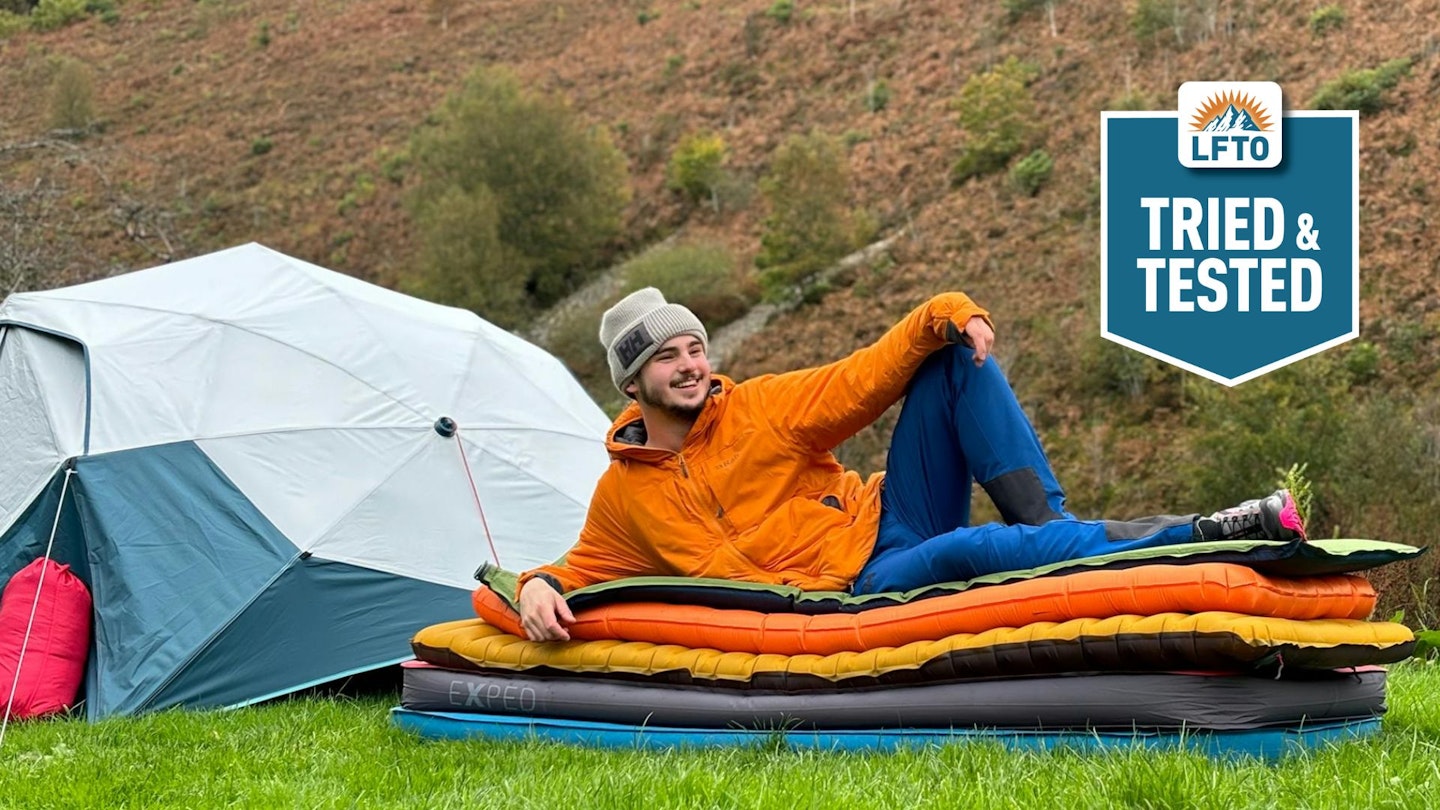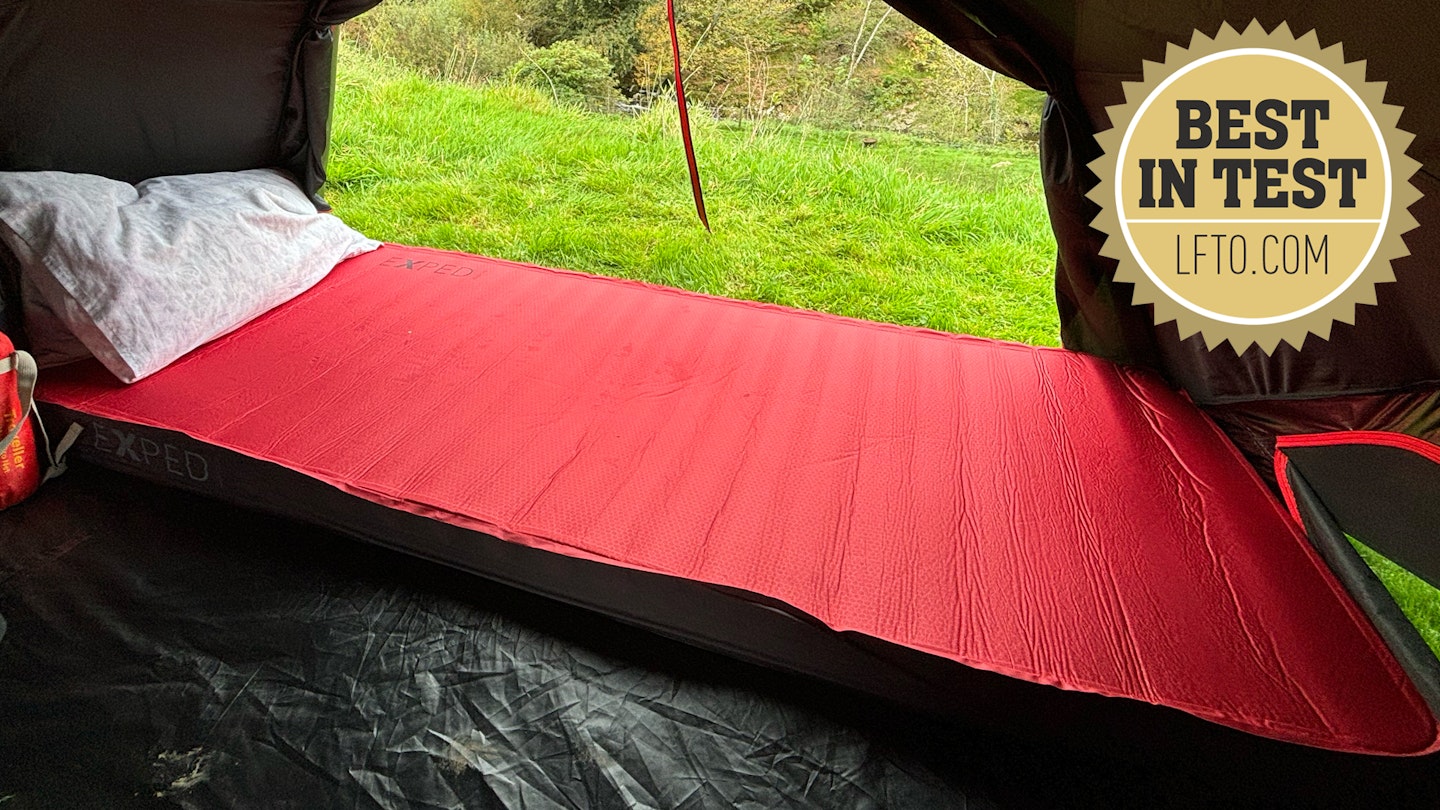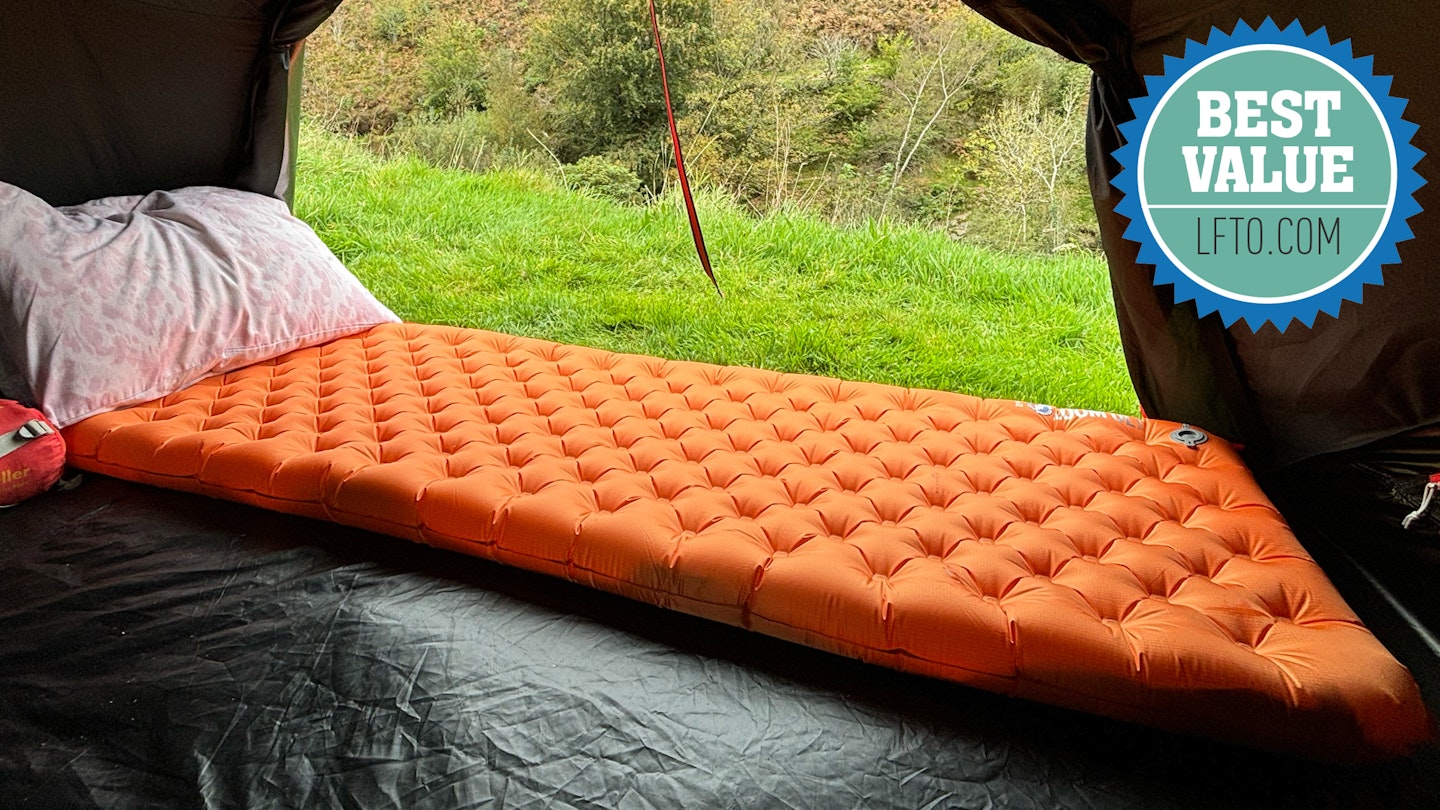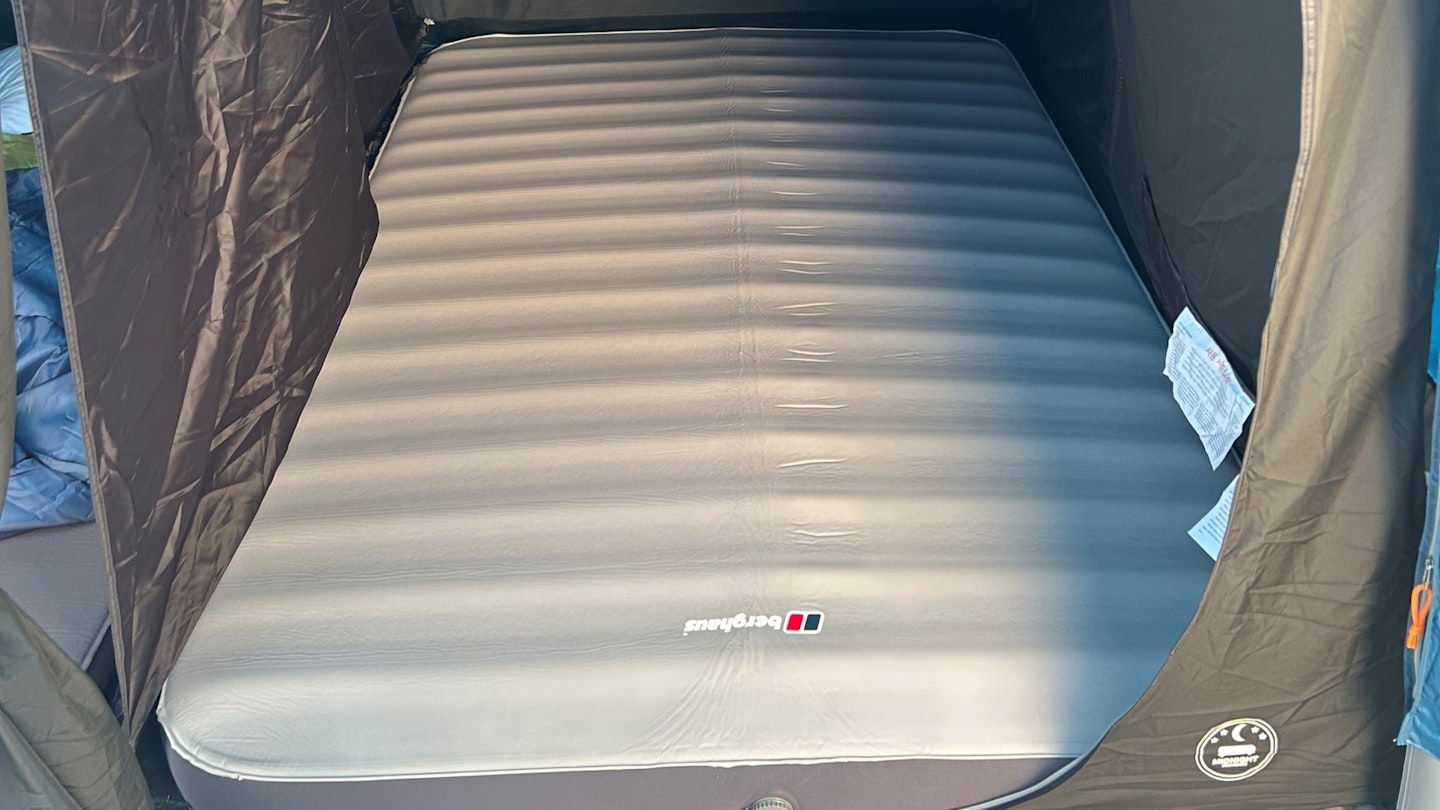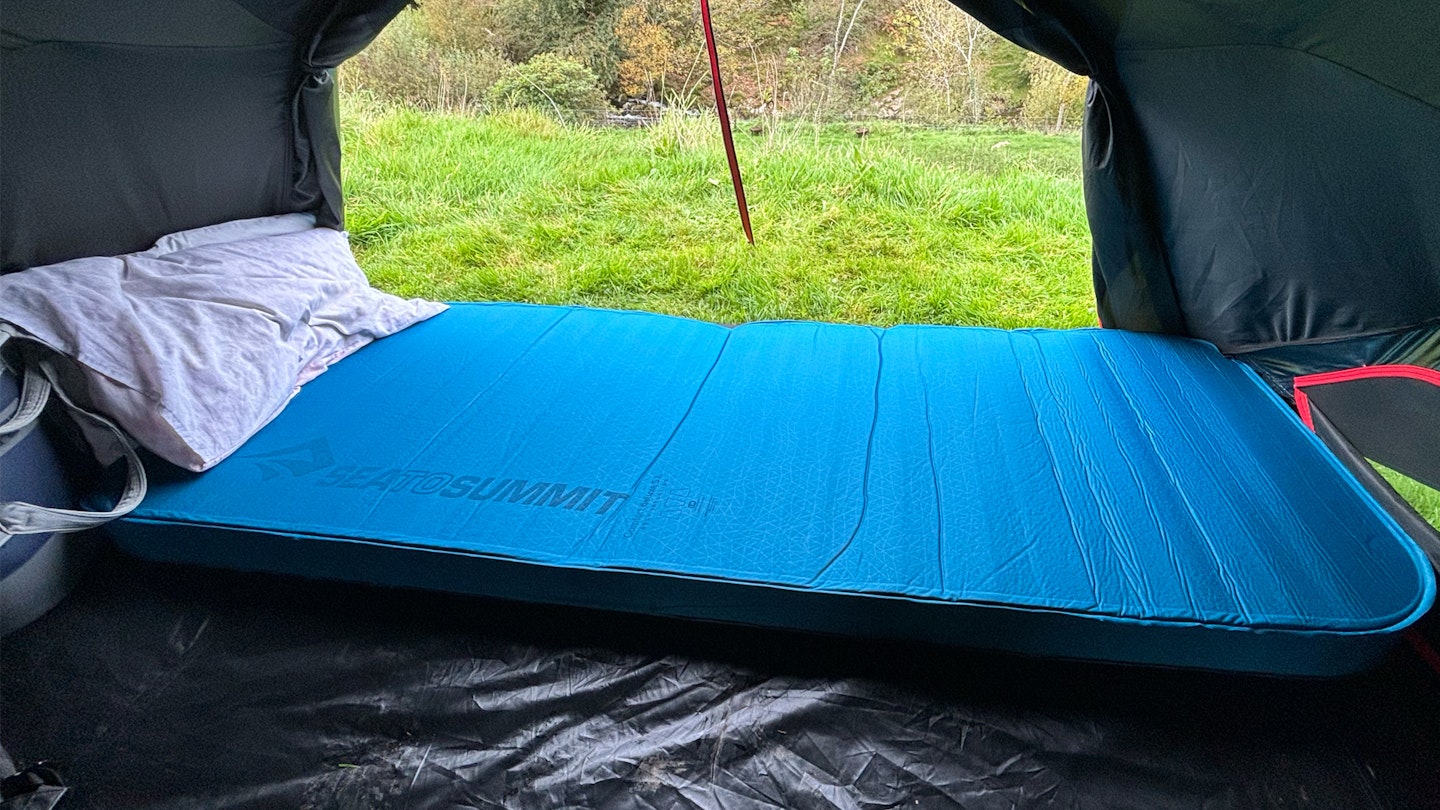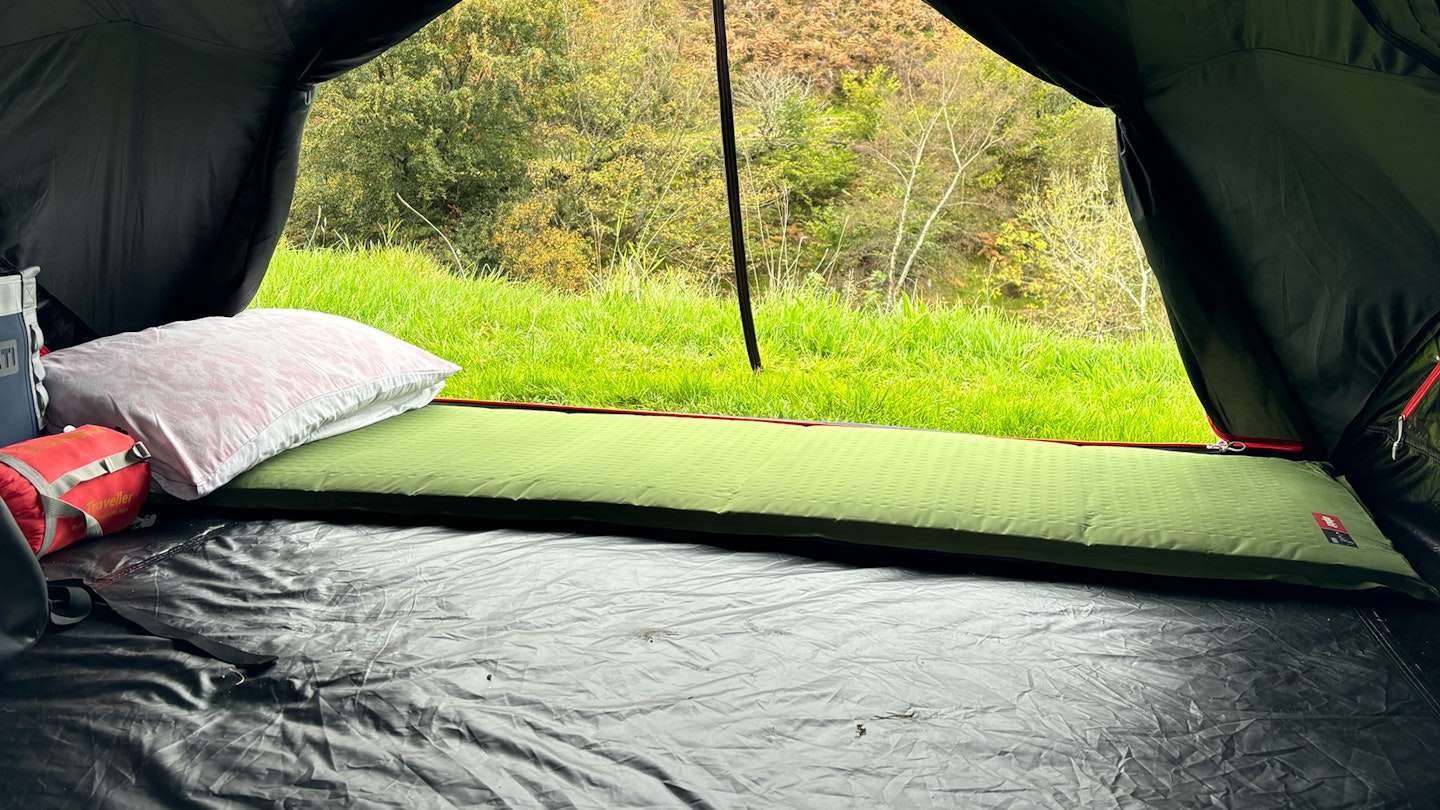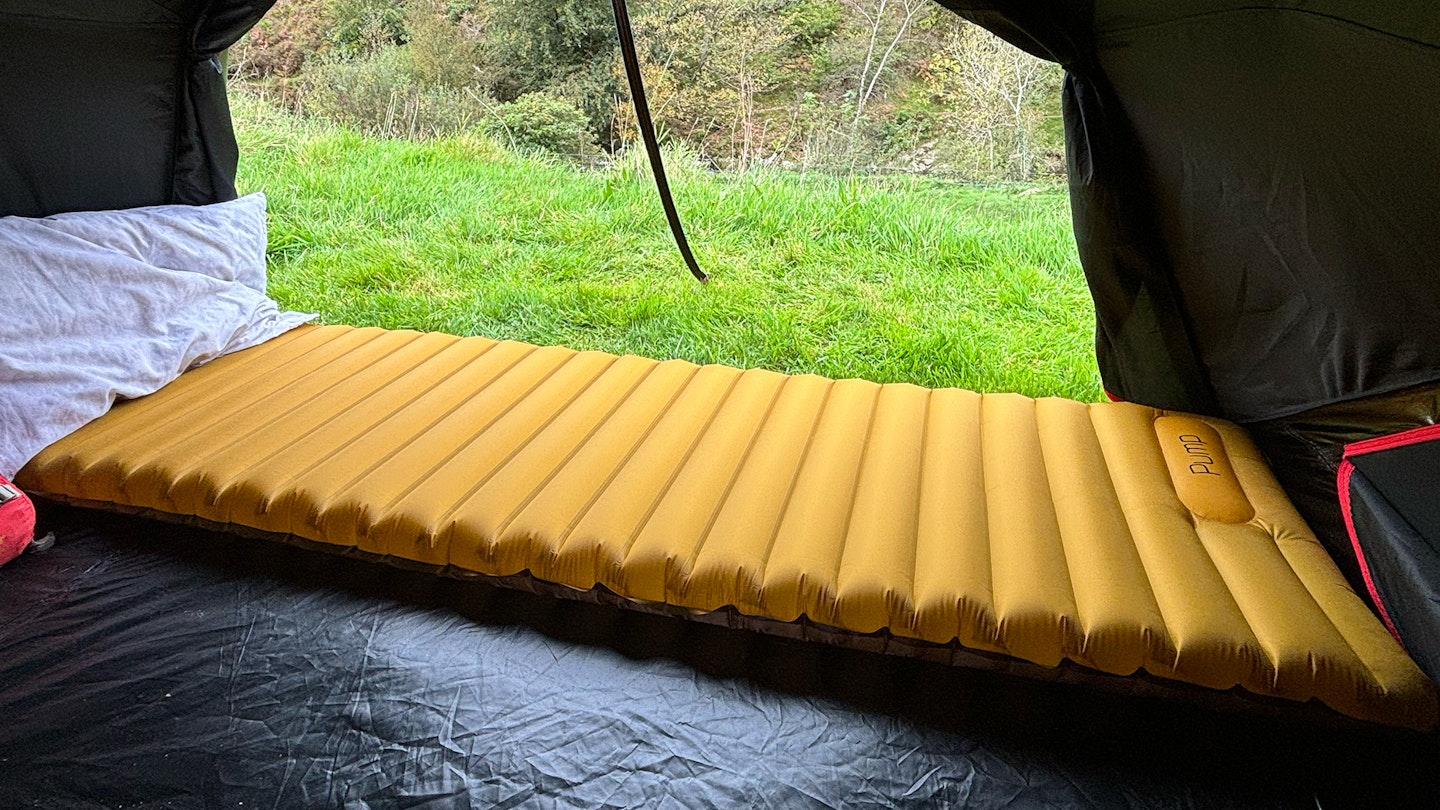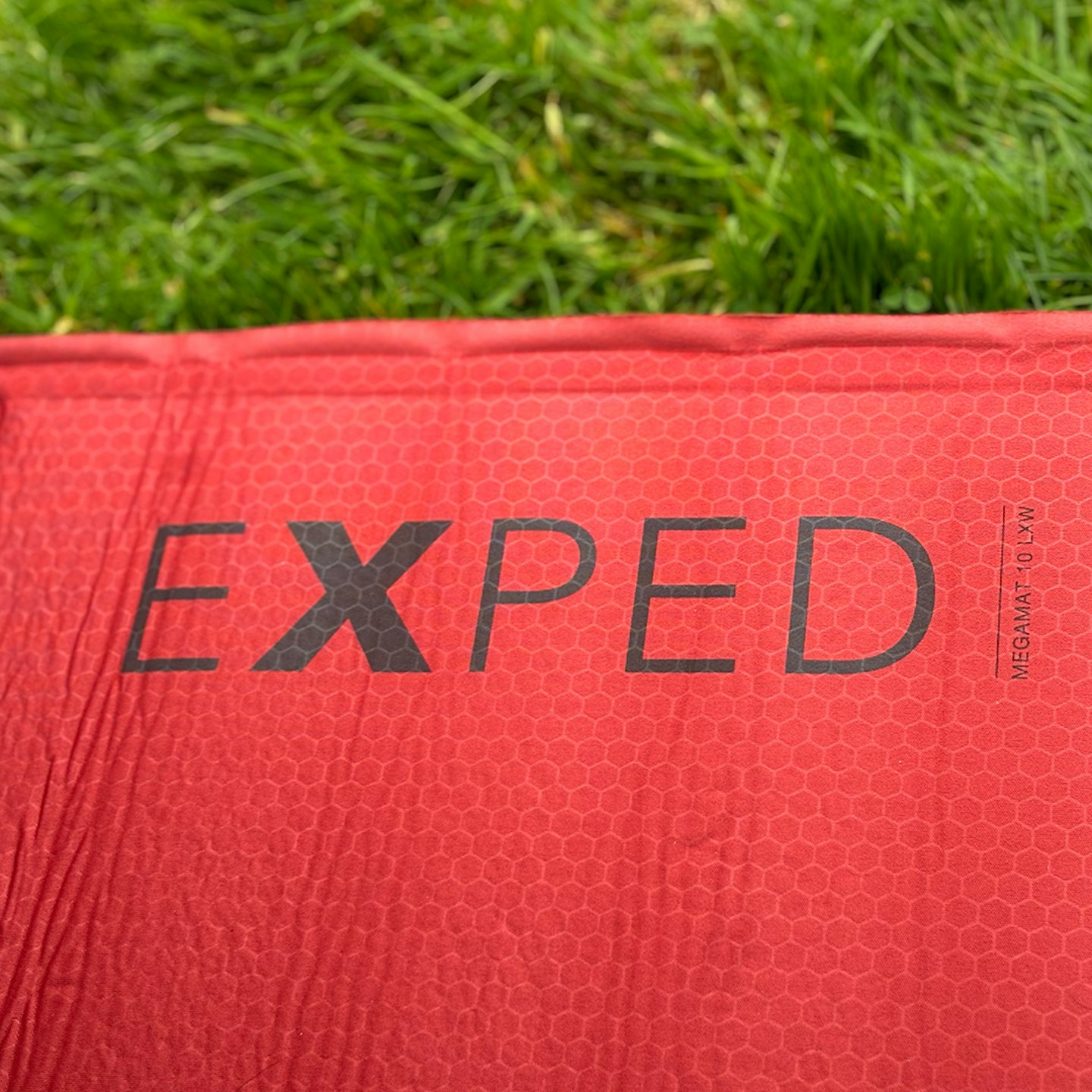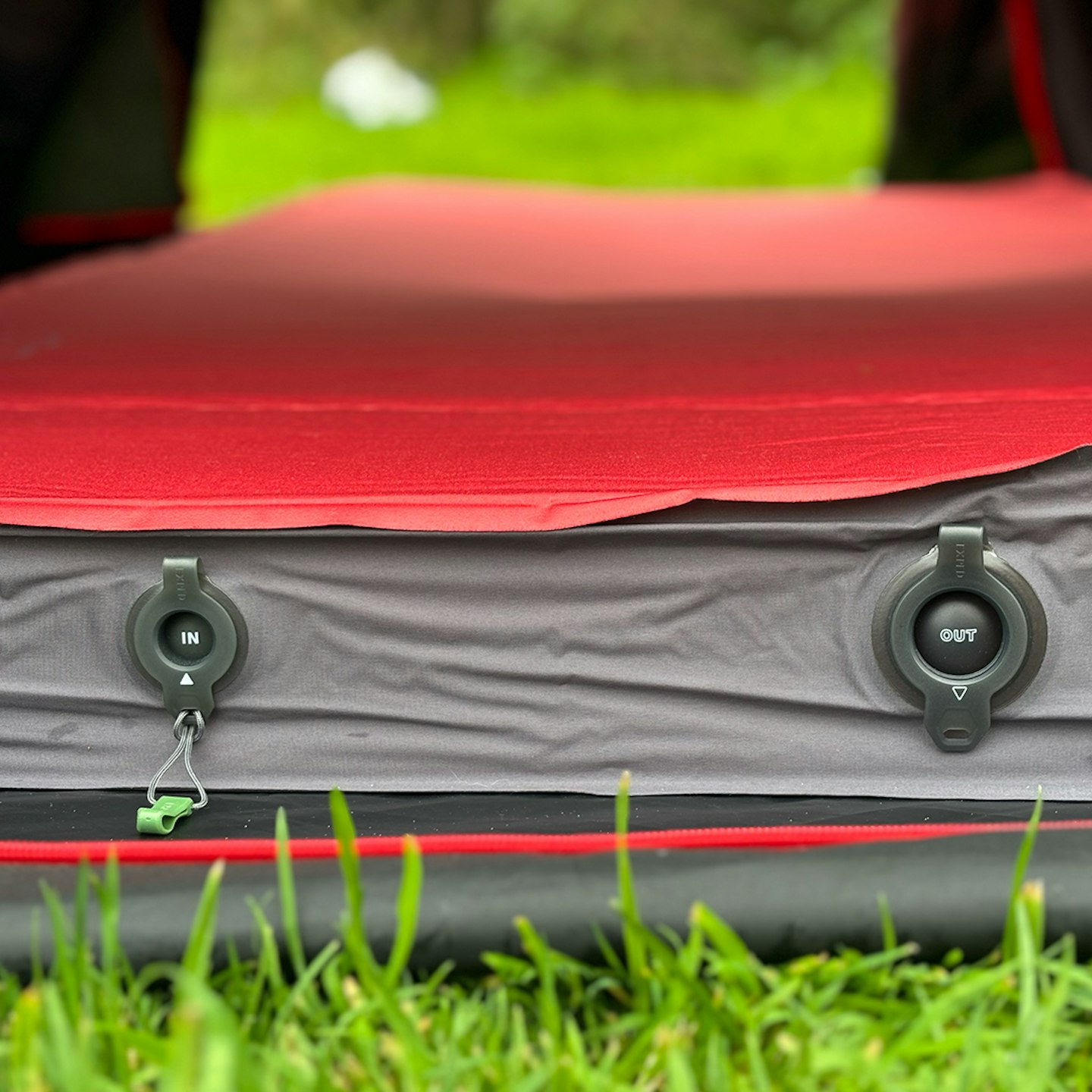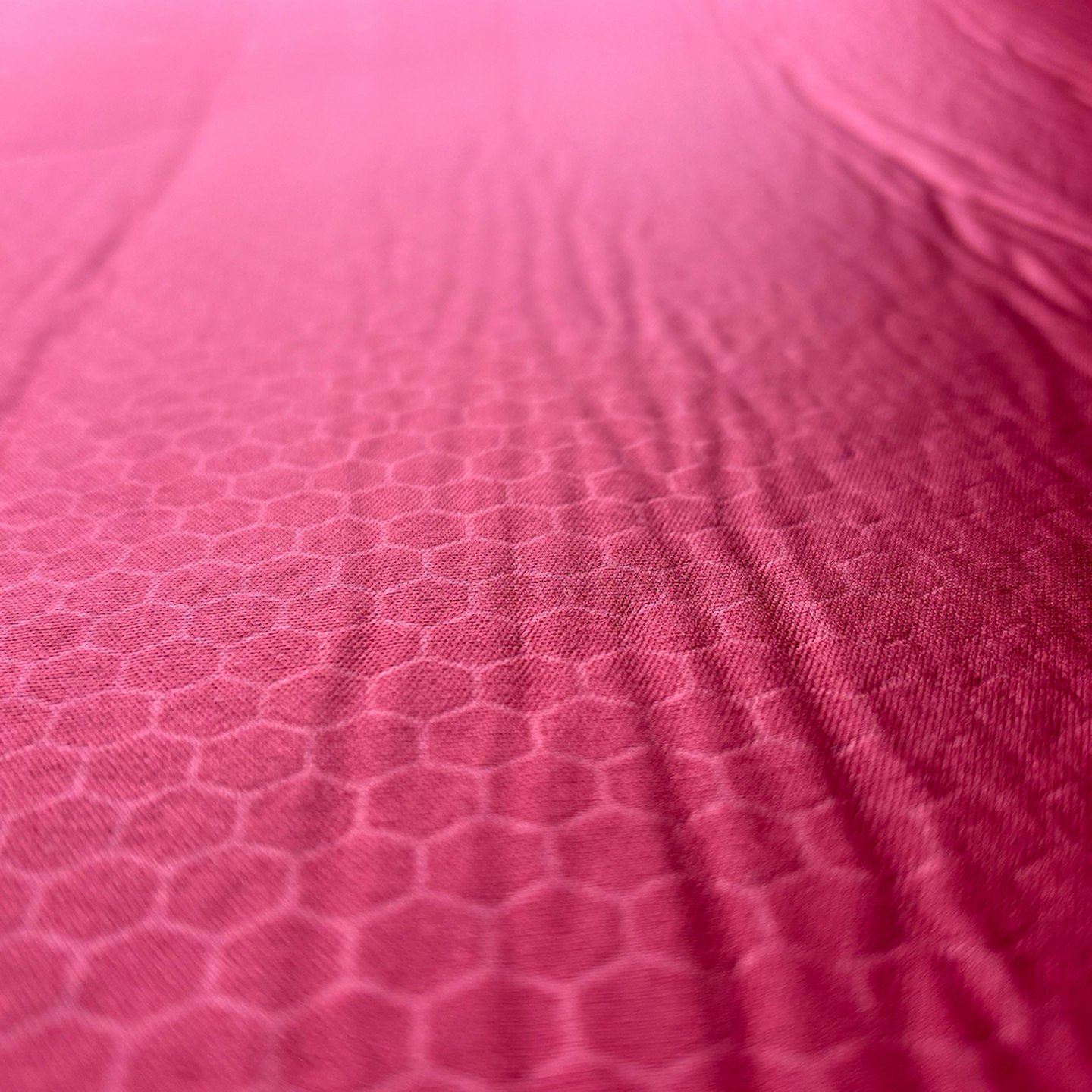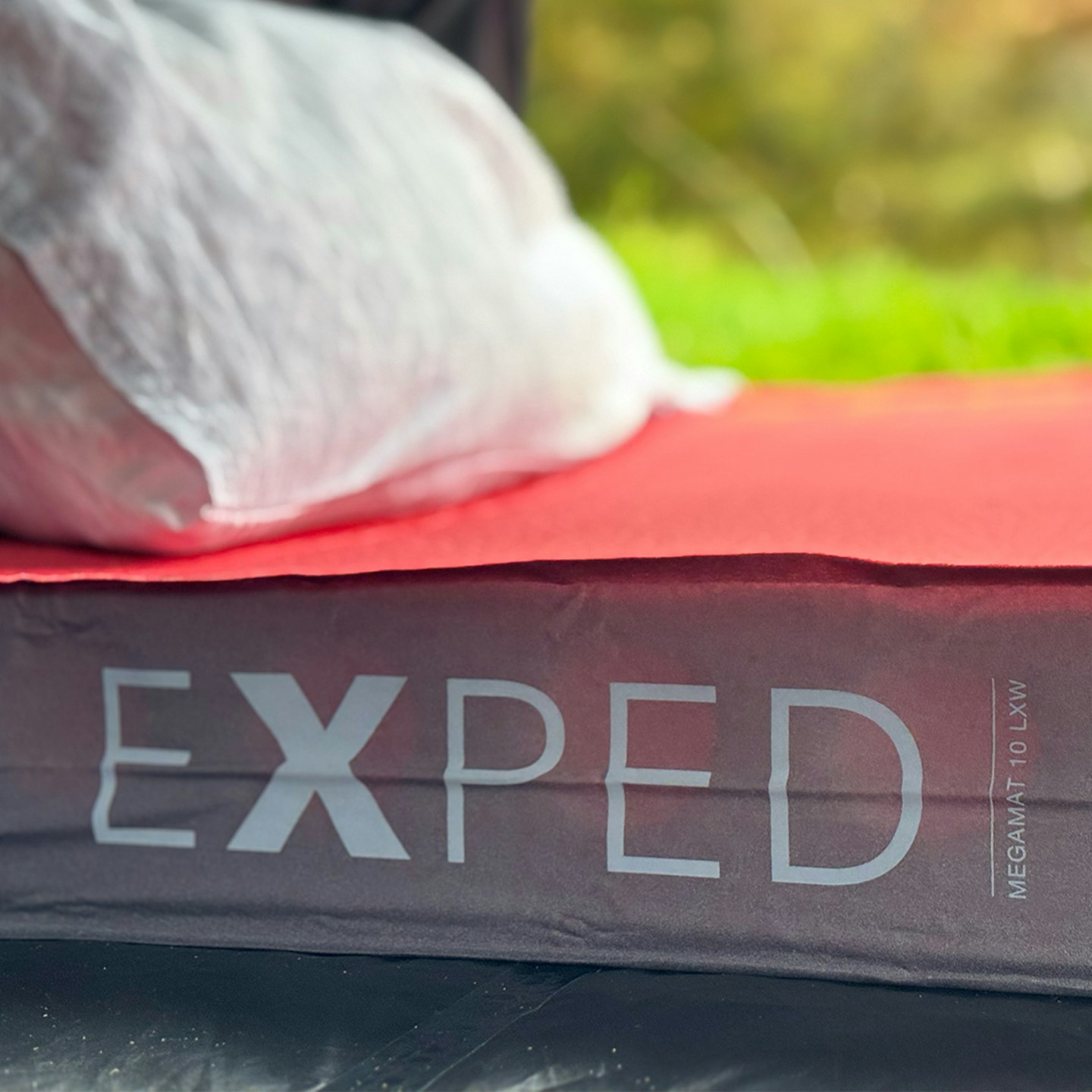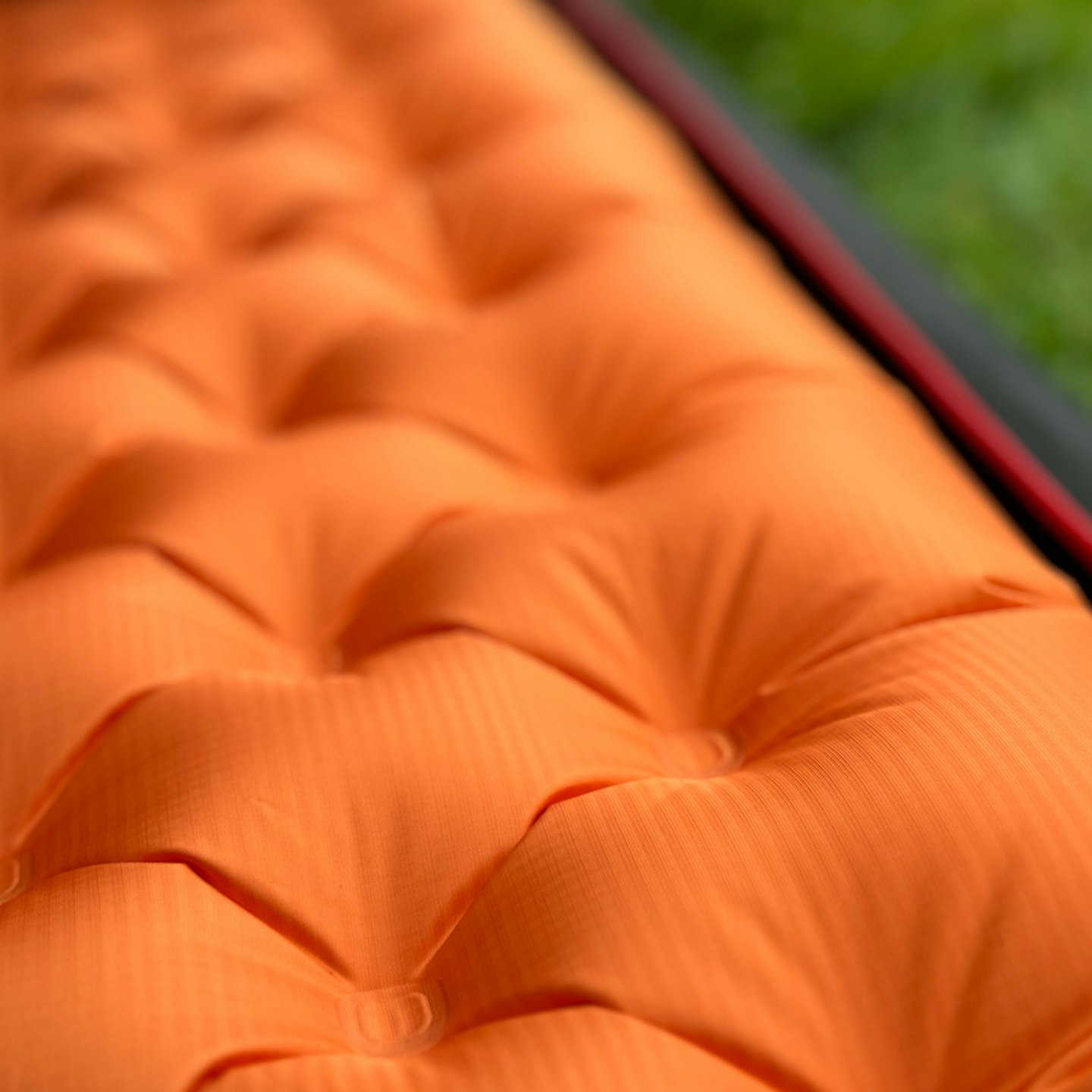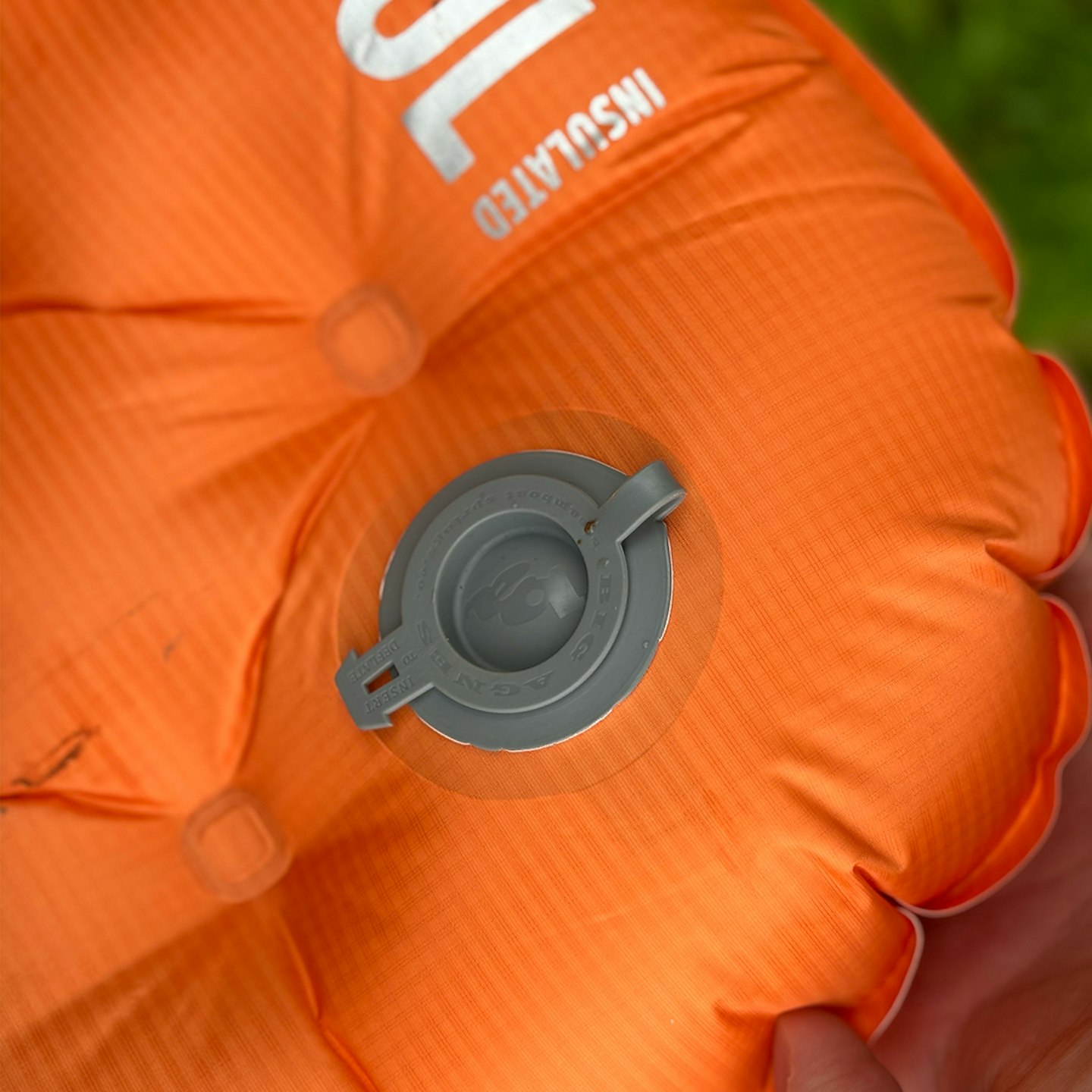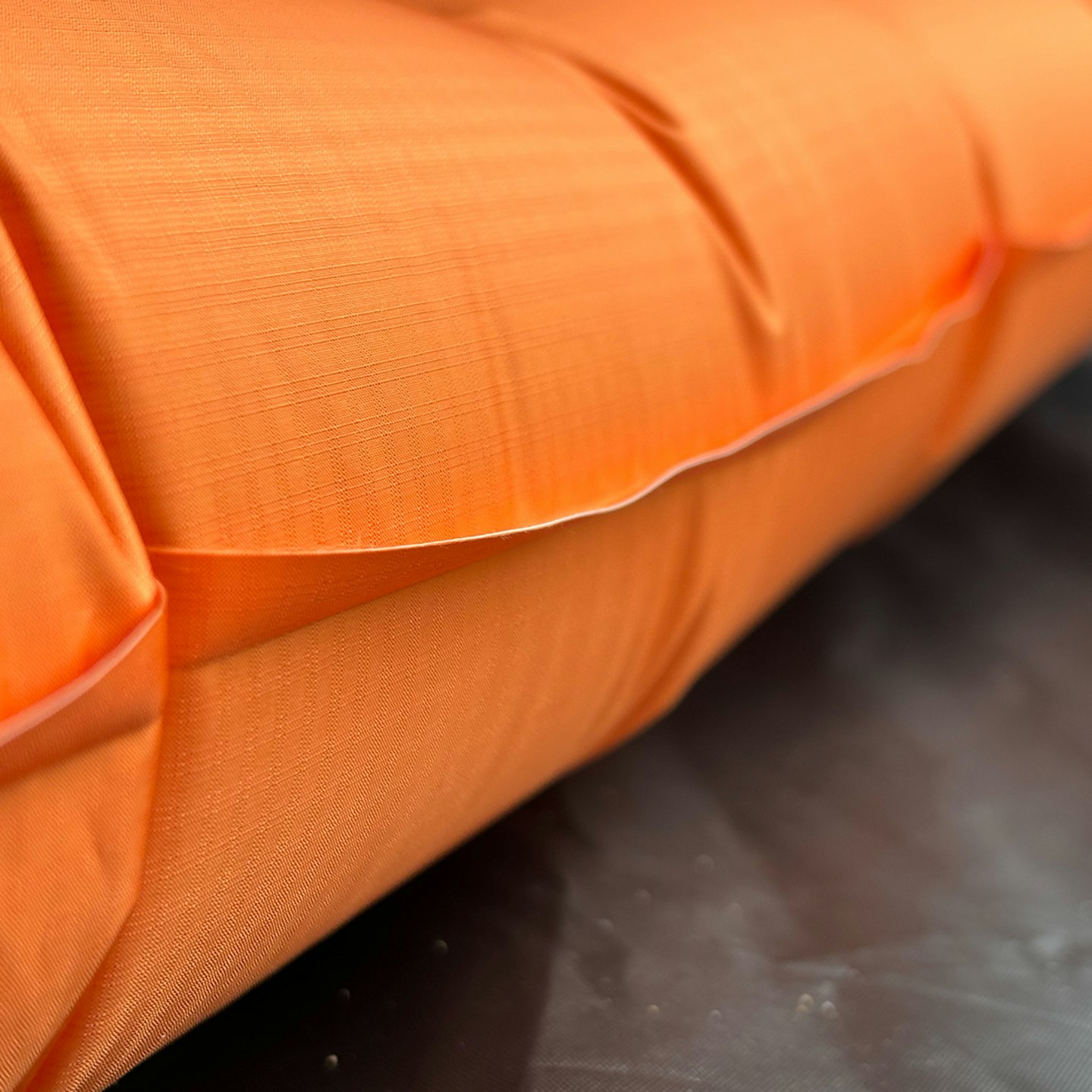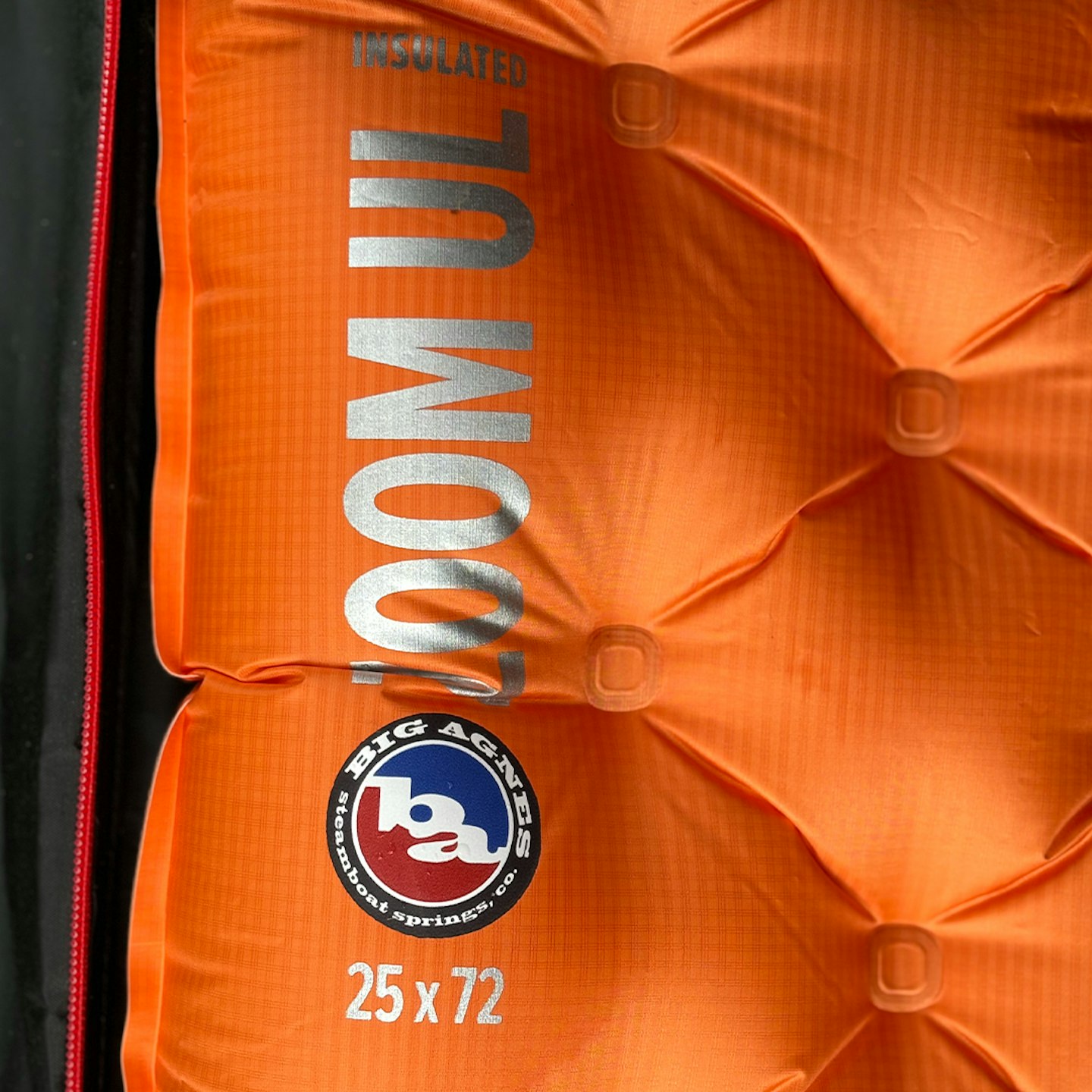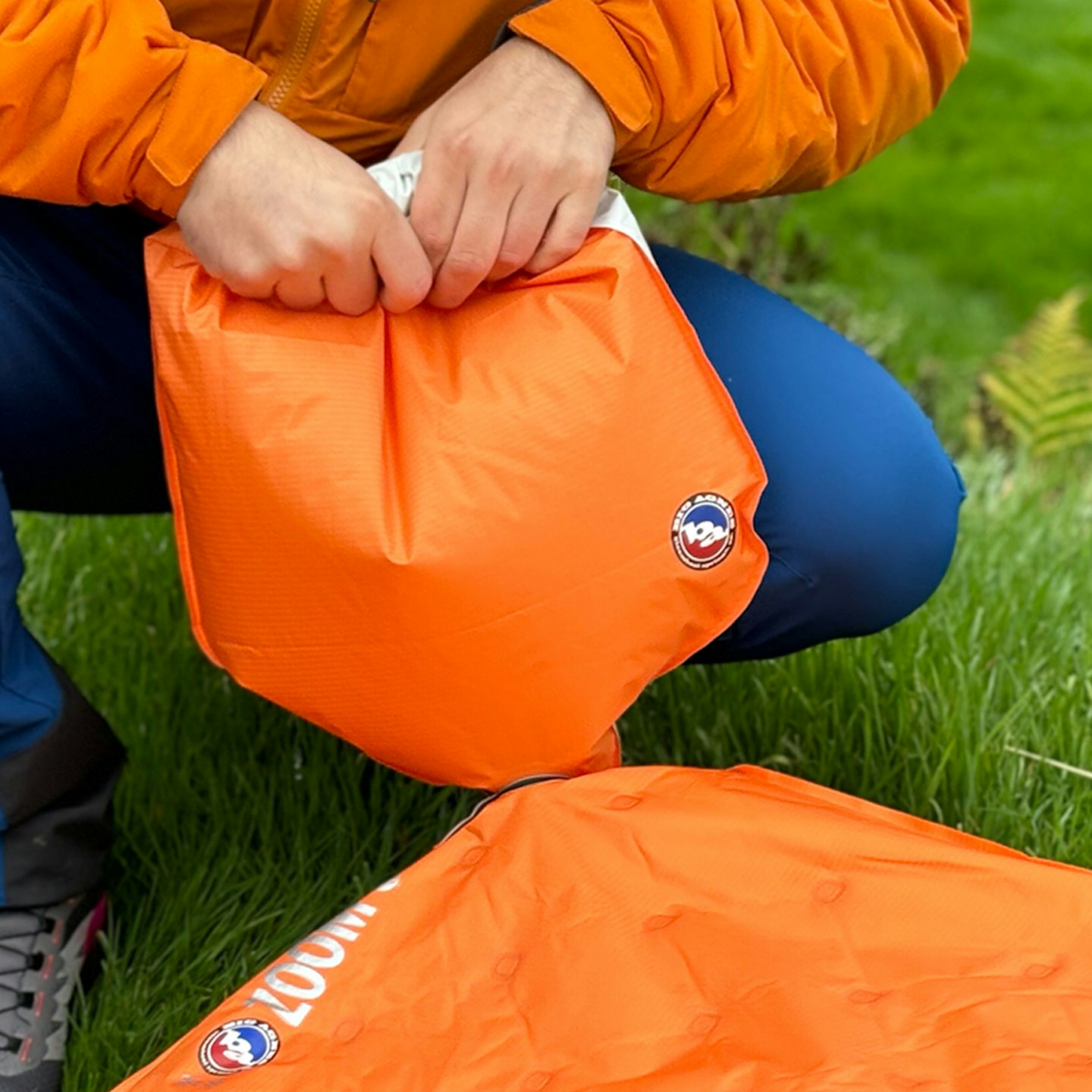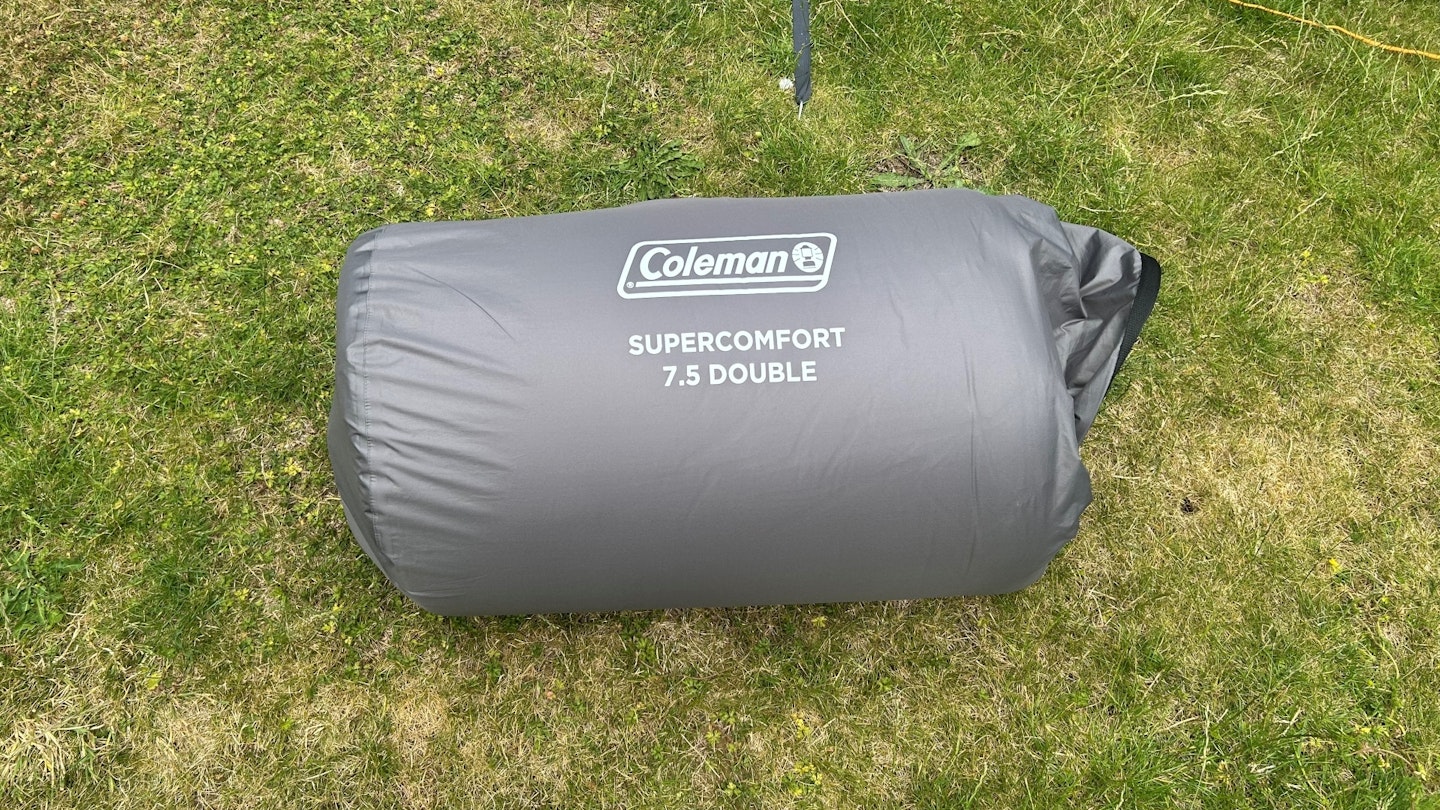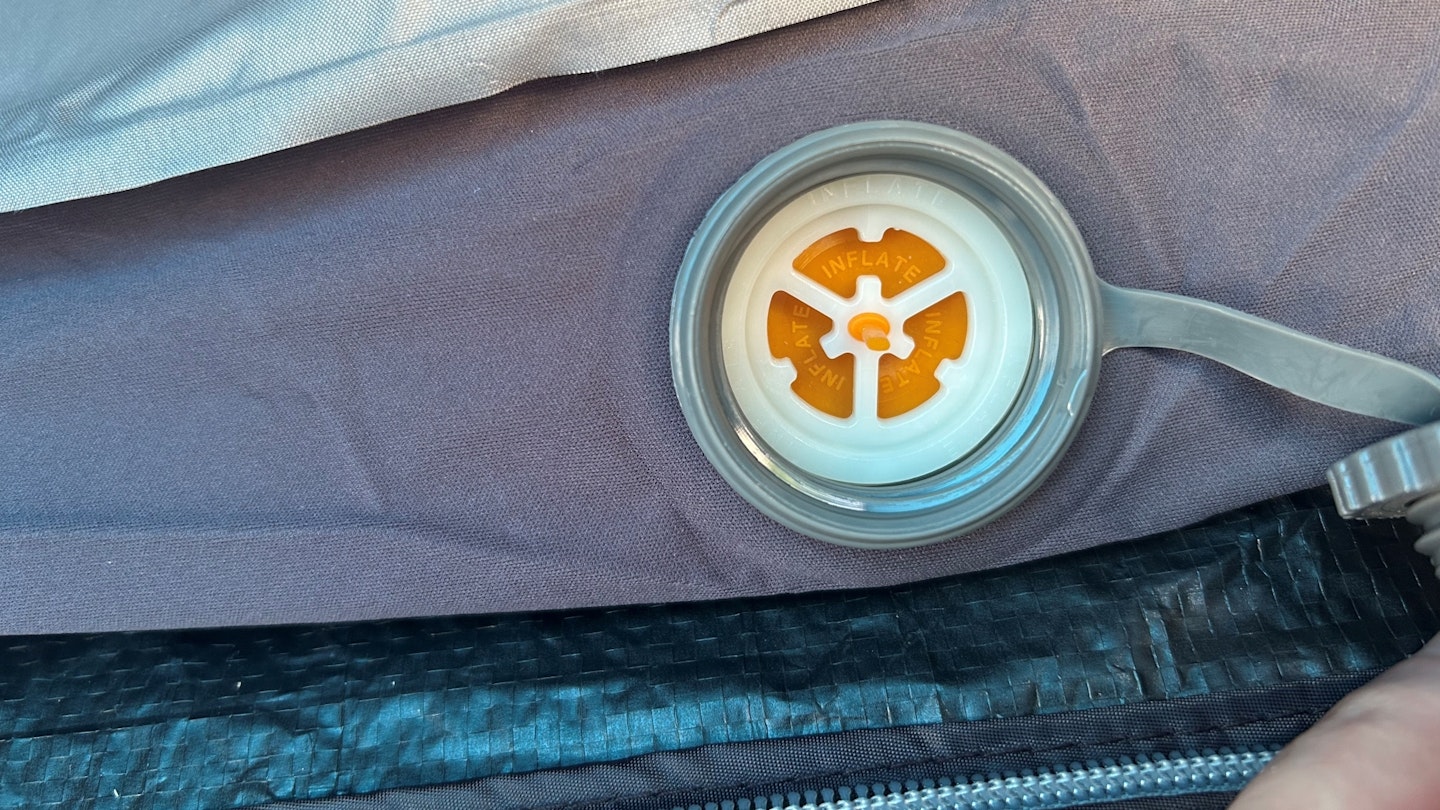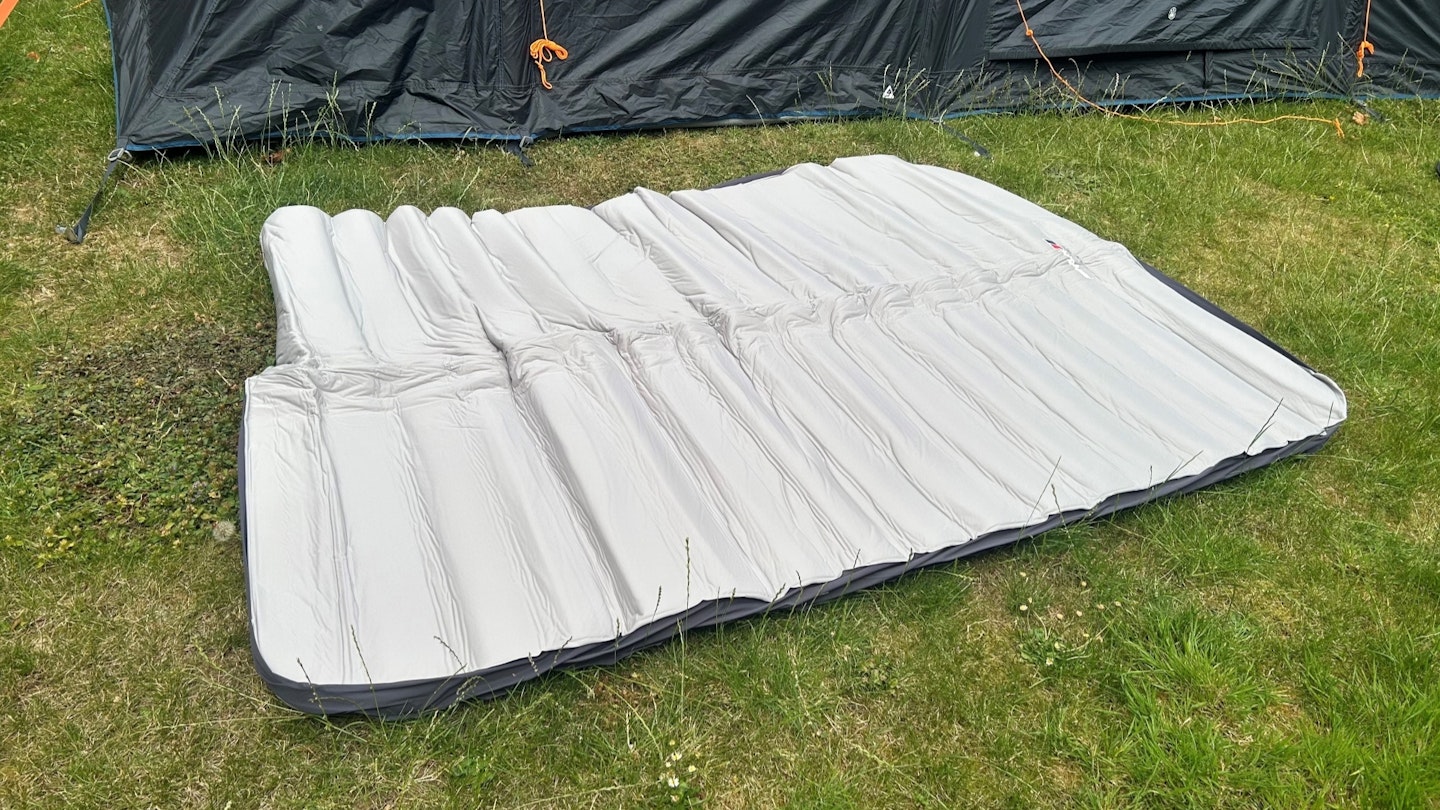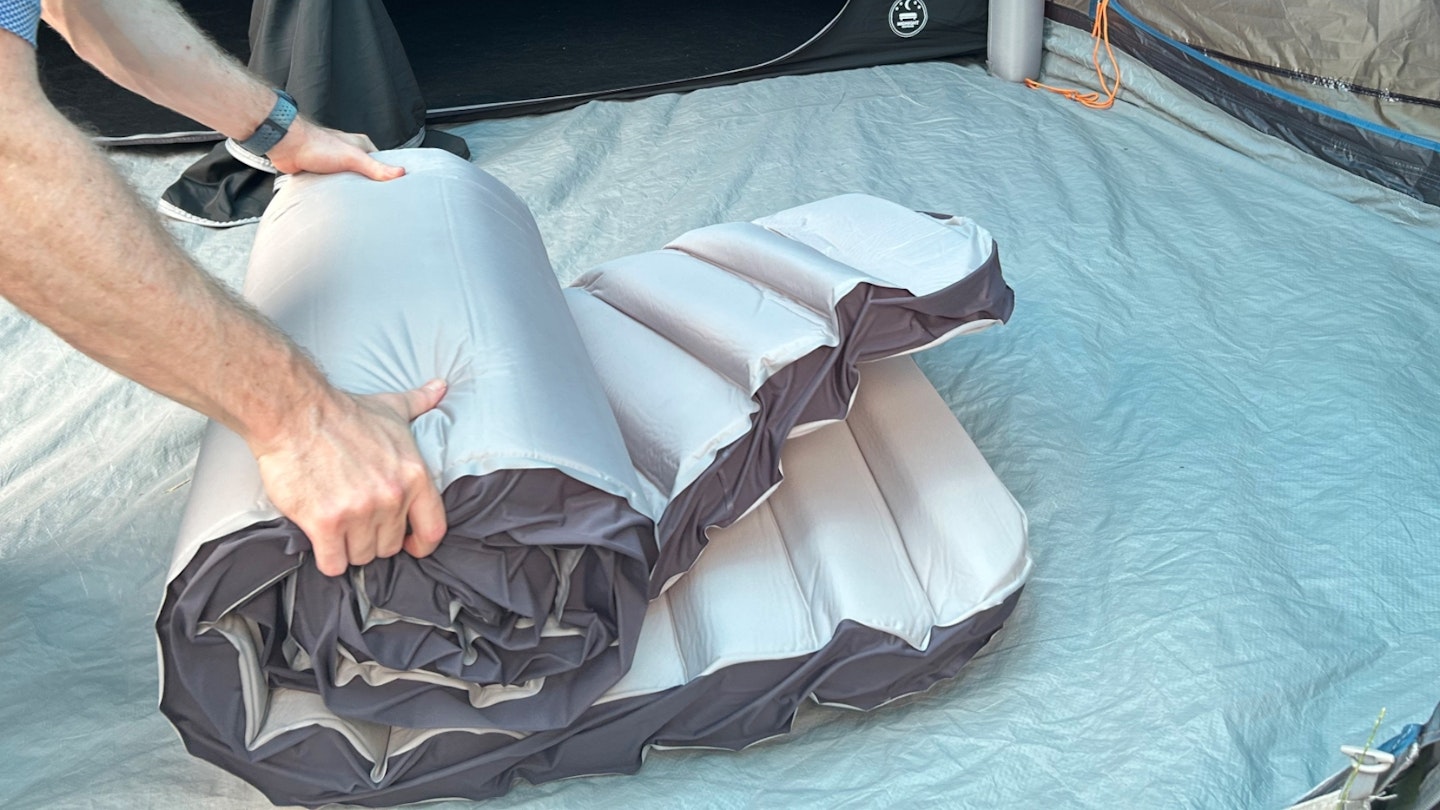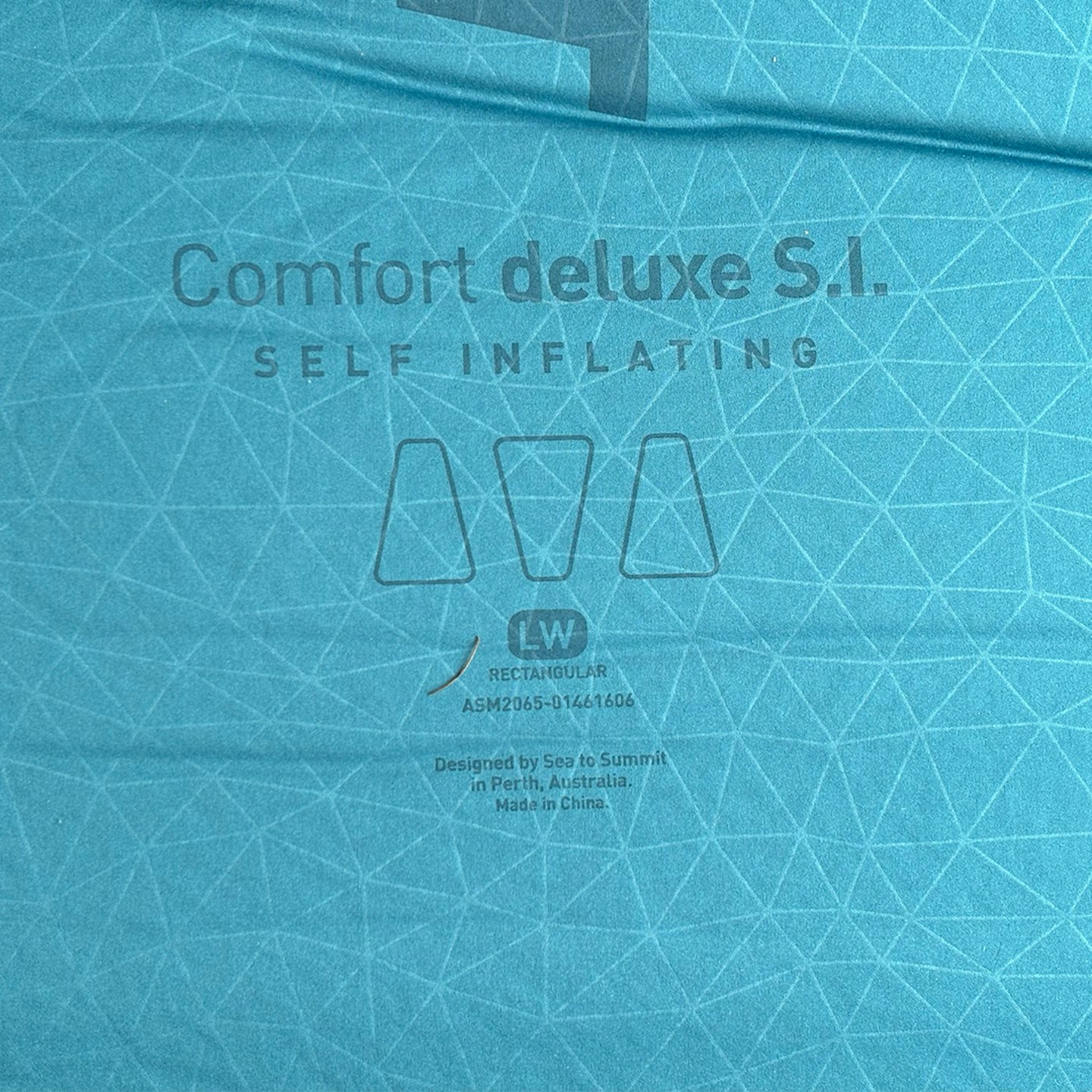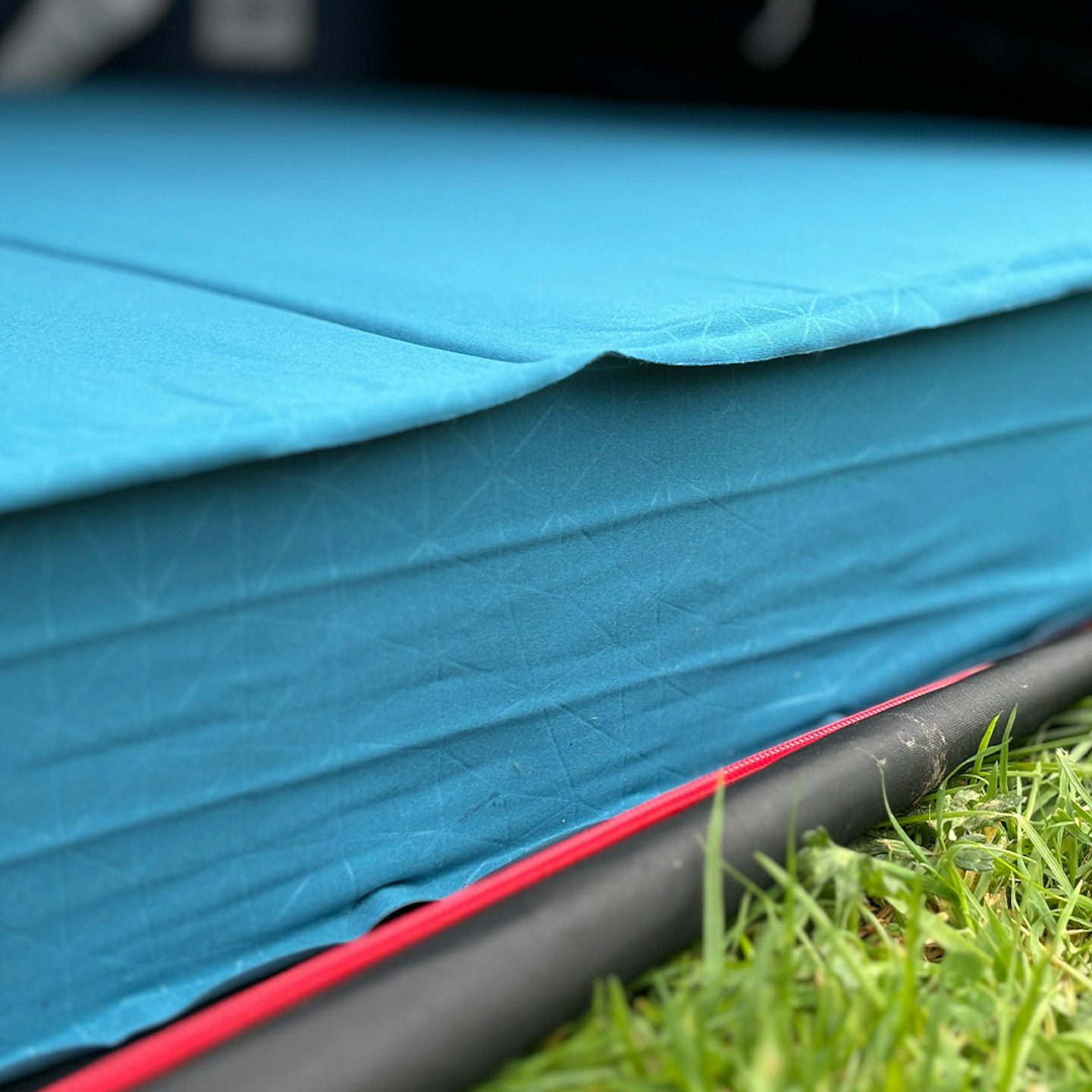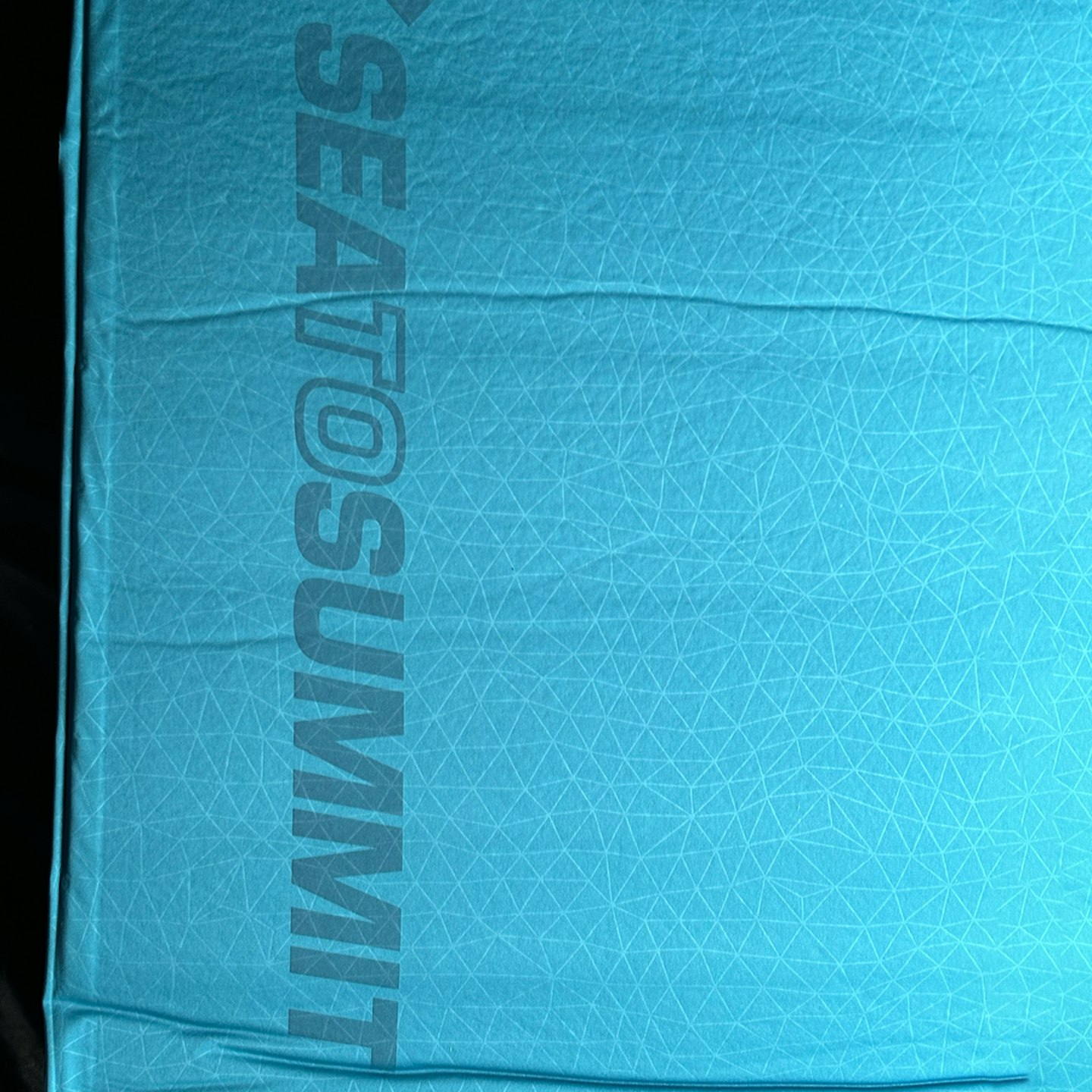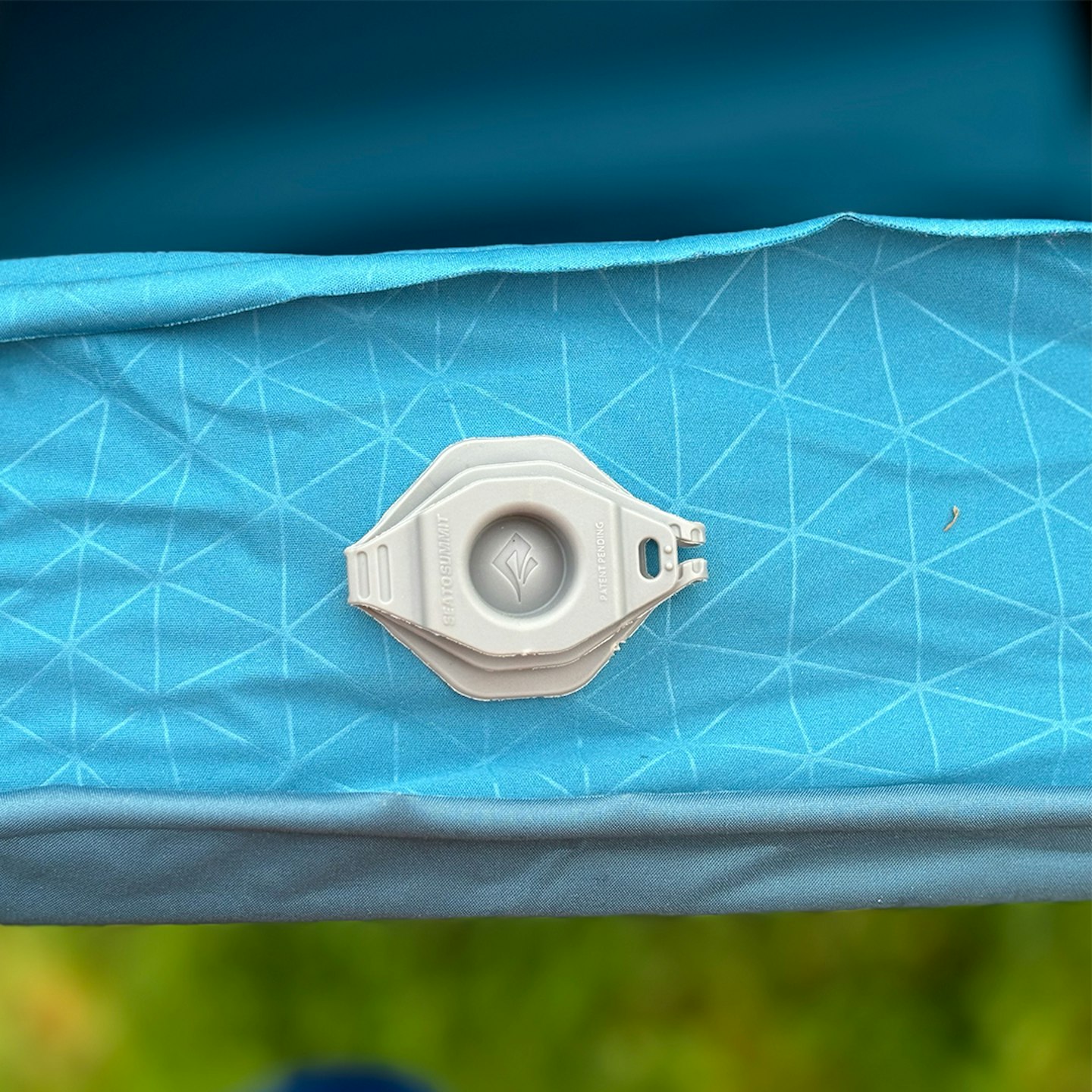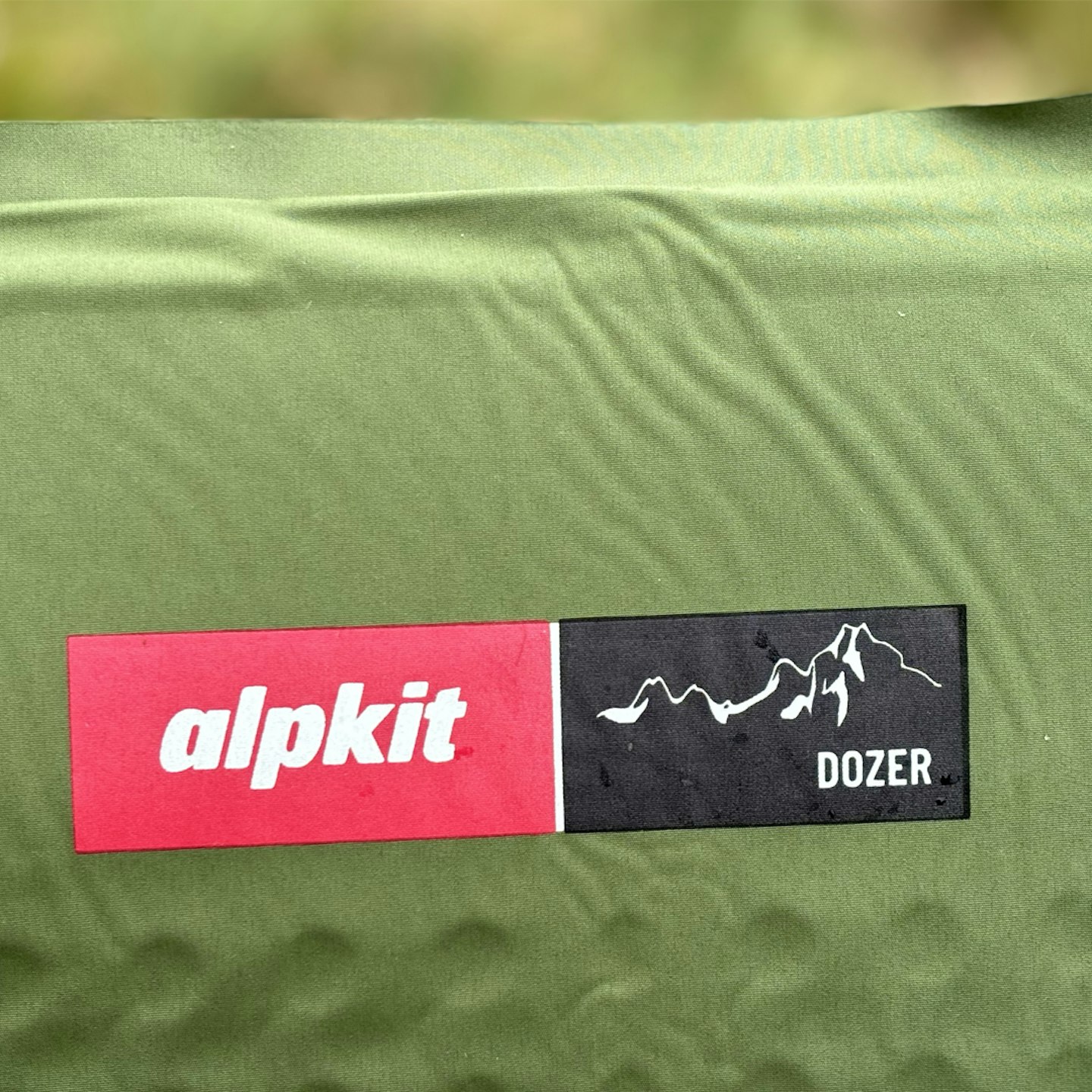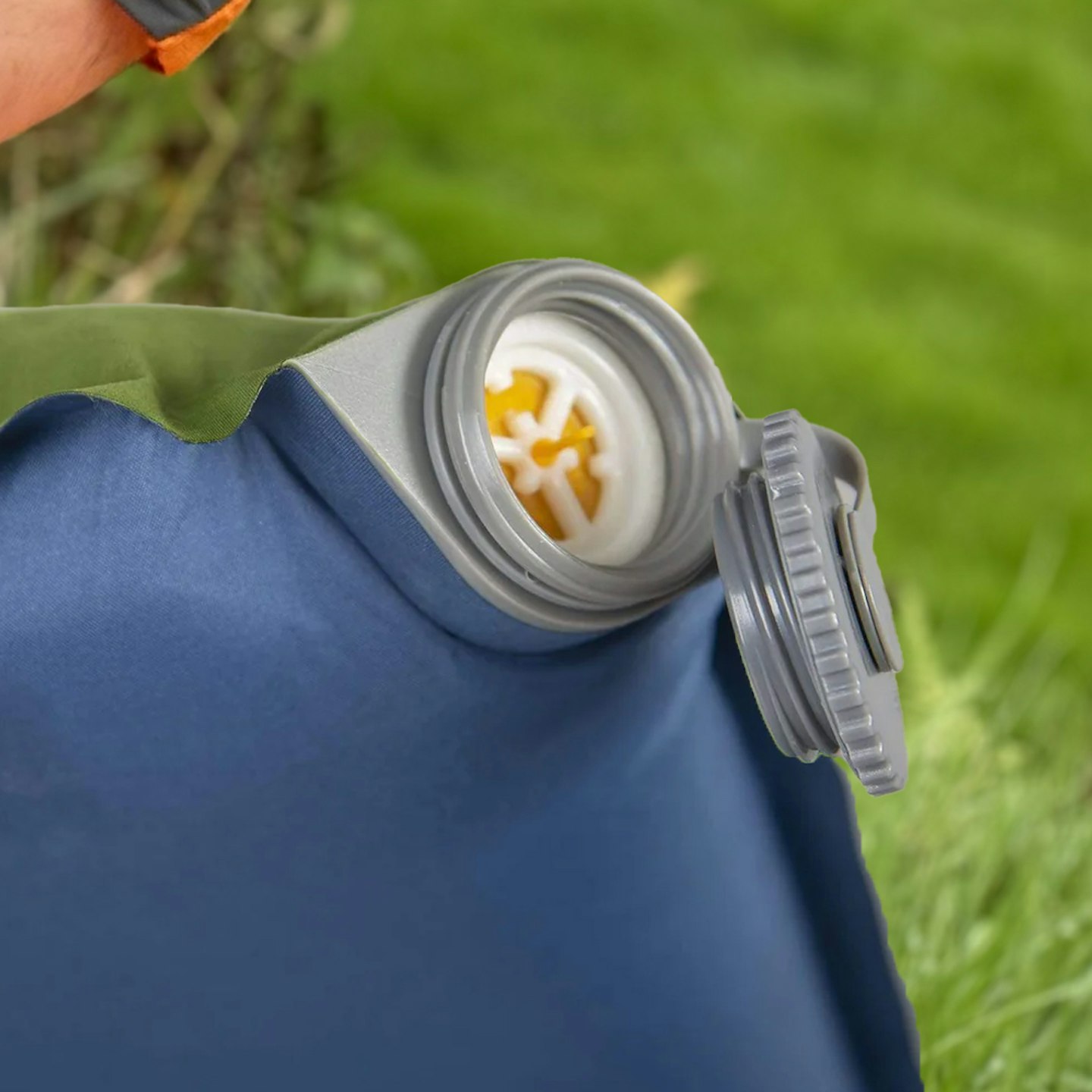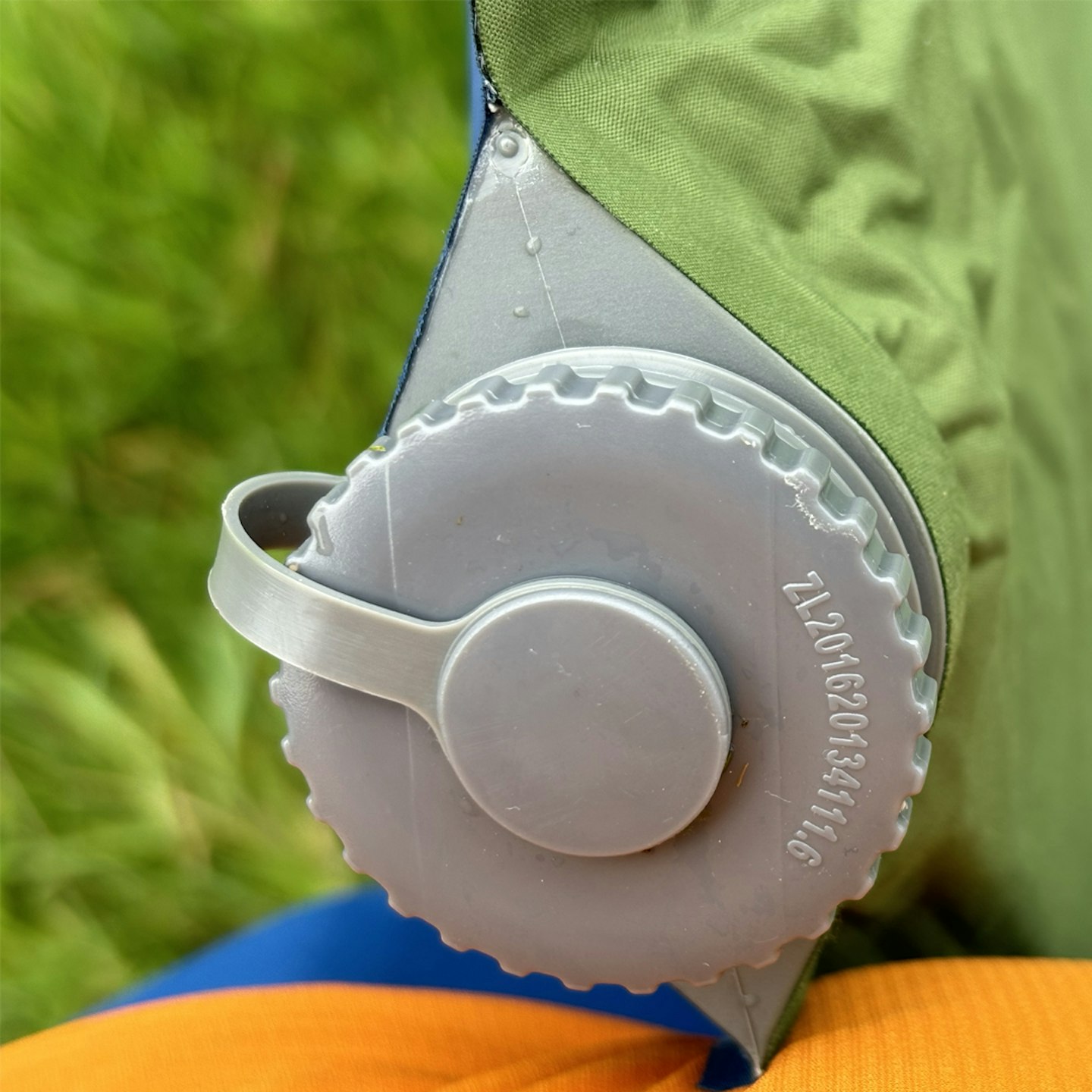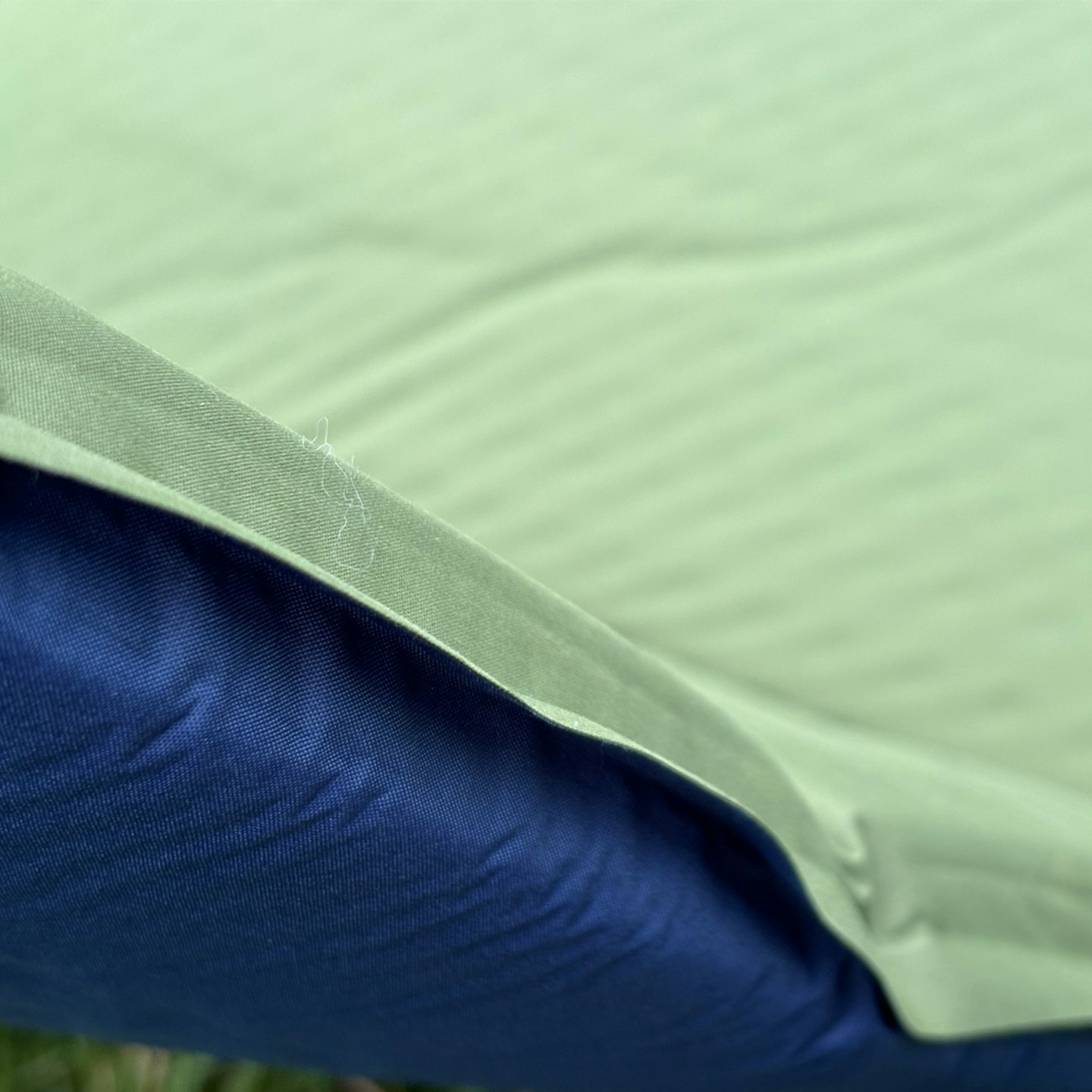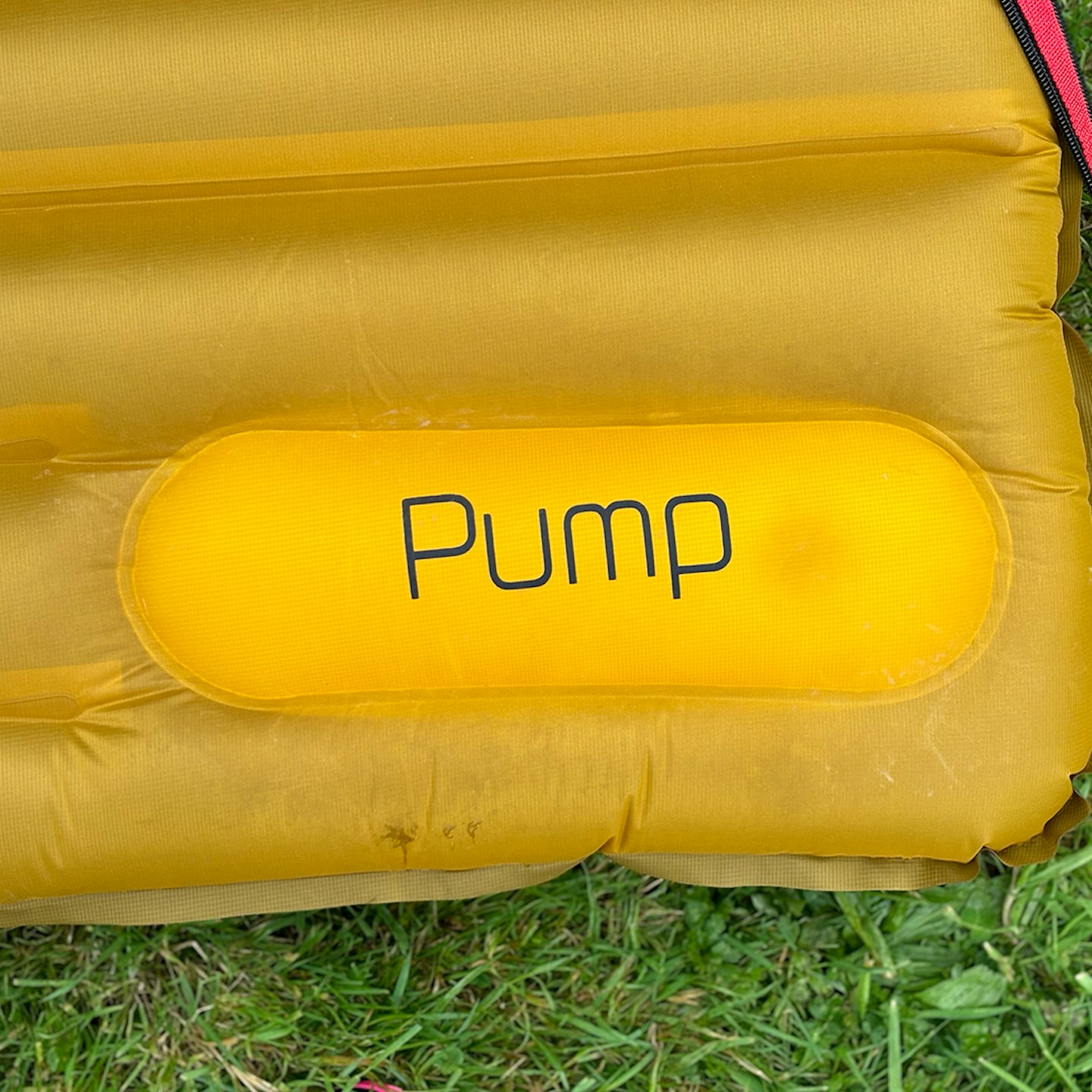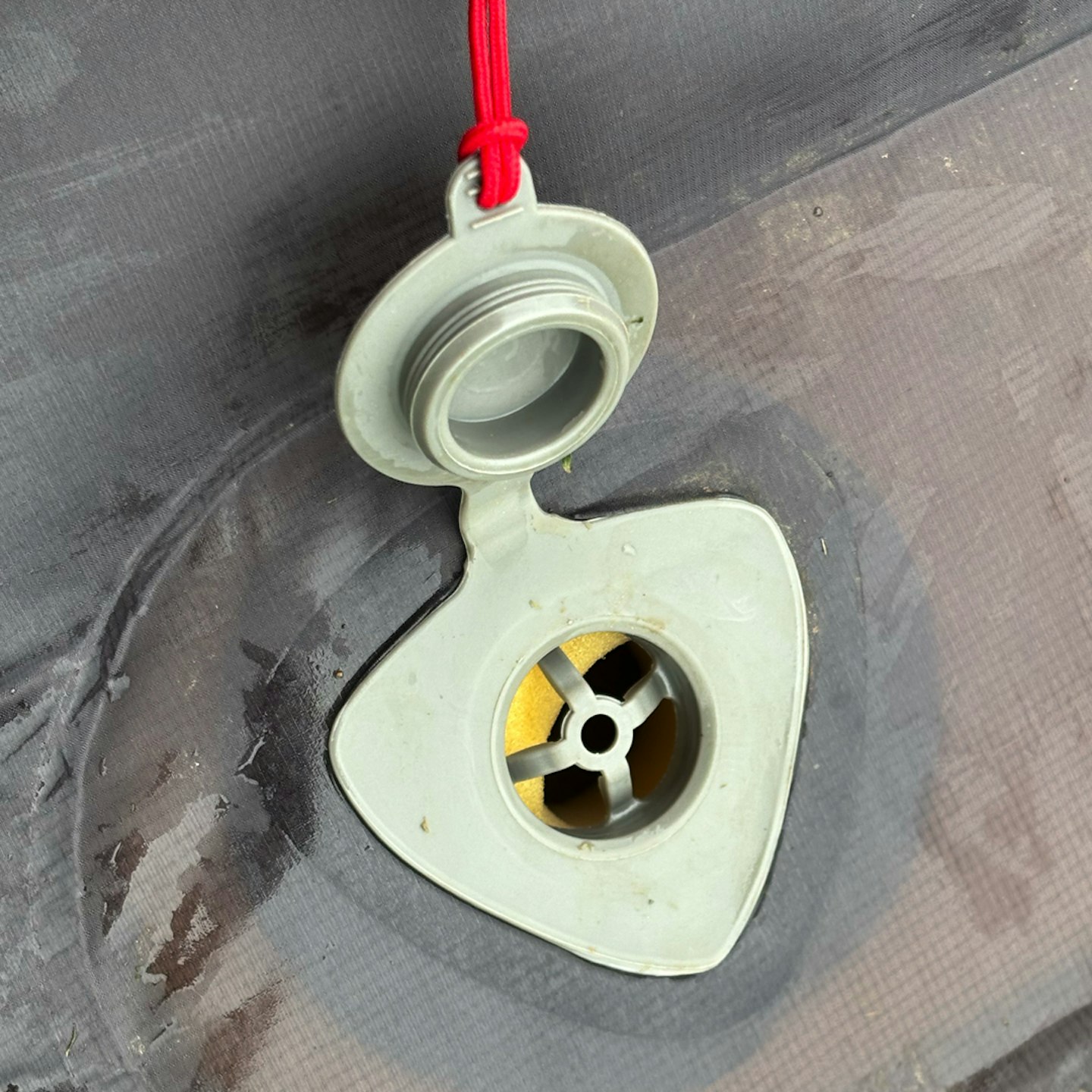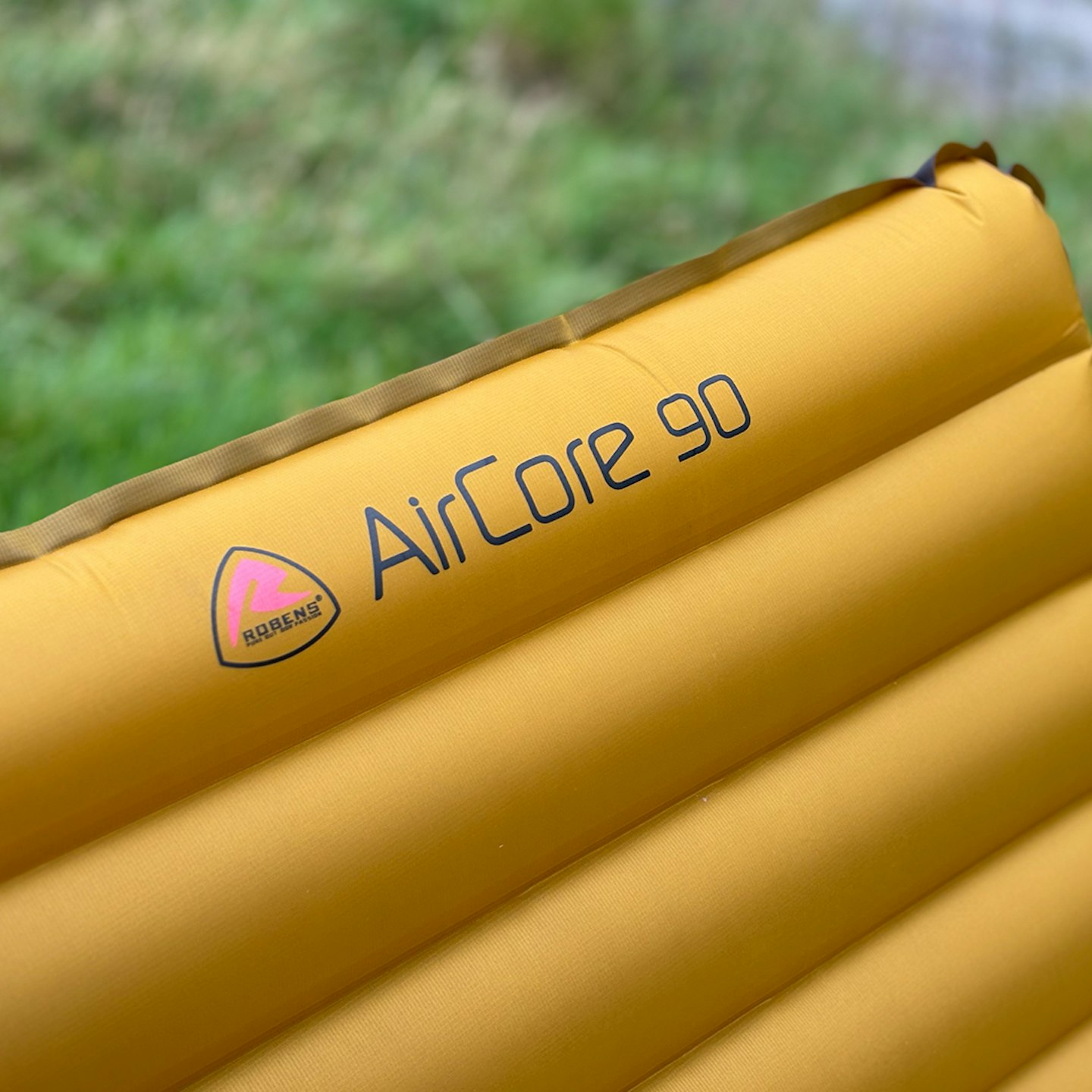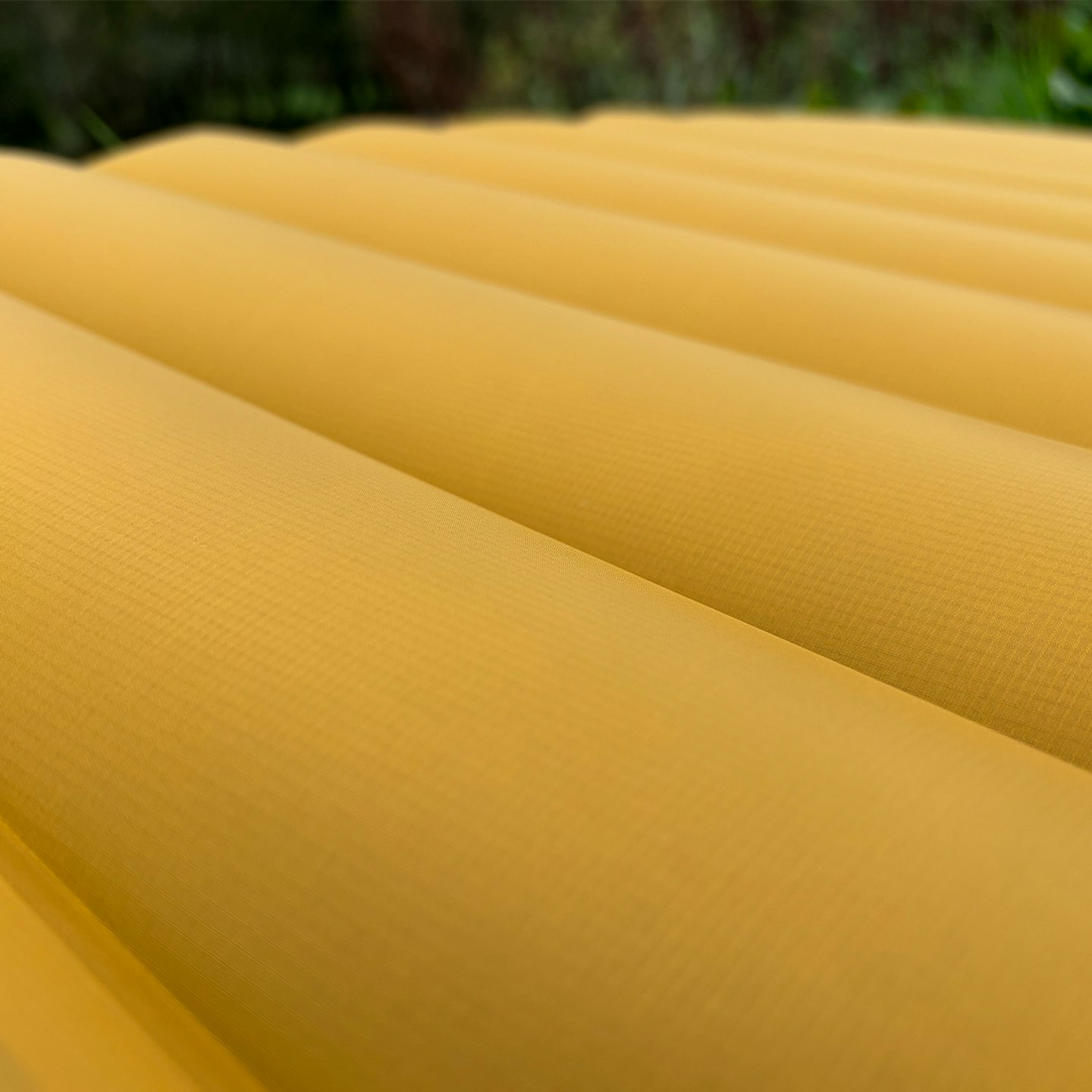If you don't need something super lightweight and are prioritising comfort over all else, a thick camping mattress is one of the highest yielding investments you can make to get better sleep in wild conditions.
The benefits of a proper camping mattress are twofold: first, it protects you from the uneven ground by lifting you off the ground, either with a lot of air or with an insulated foam structure. And second, a nice airbed is just so much more comfortable than classic backpacking sleeping mats, being usually both wider and thicker.
Of course, this does often come with a trade-off. Self-inflating camping mattresses can add a good chunk of extra weight to your camping kit, take up a lot more space and can be more expensive.
And while you can absolutely use lightweight, backpacking-style sleeping mats while car camping, they often don't deliver the sort of basecamp comfort we all long for.
What are the best camping mattresses of 2025?
Best in test: Exped Megamat LXW
Best value: Big Agnes Zoom UL Insulated
Best self-inflating mattress under £150: Quechua Self-Inflating Camping Mattress - Ultim Comfort Double
Best double camping mattress: Coleman Supercomfort 7.5cm Double
How we tested the best camping mattresses
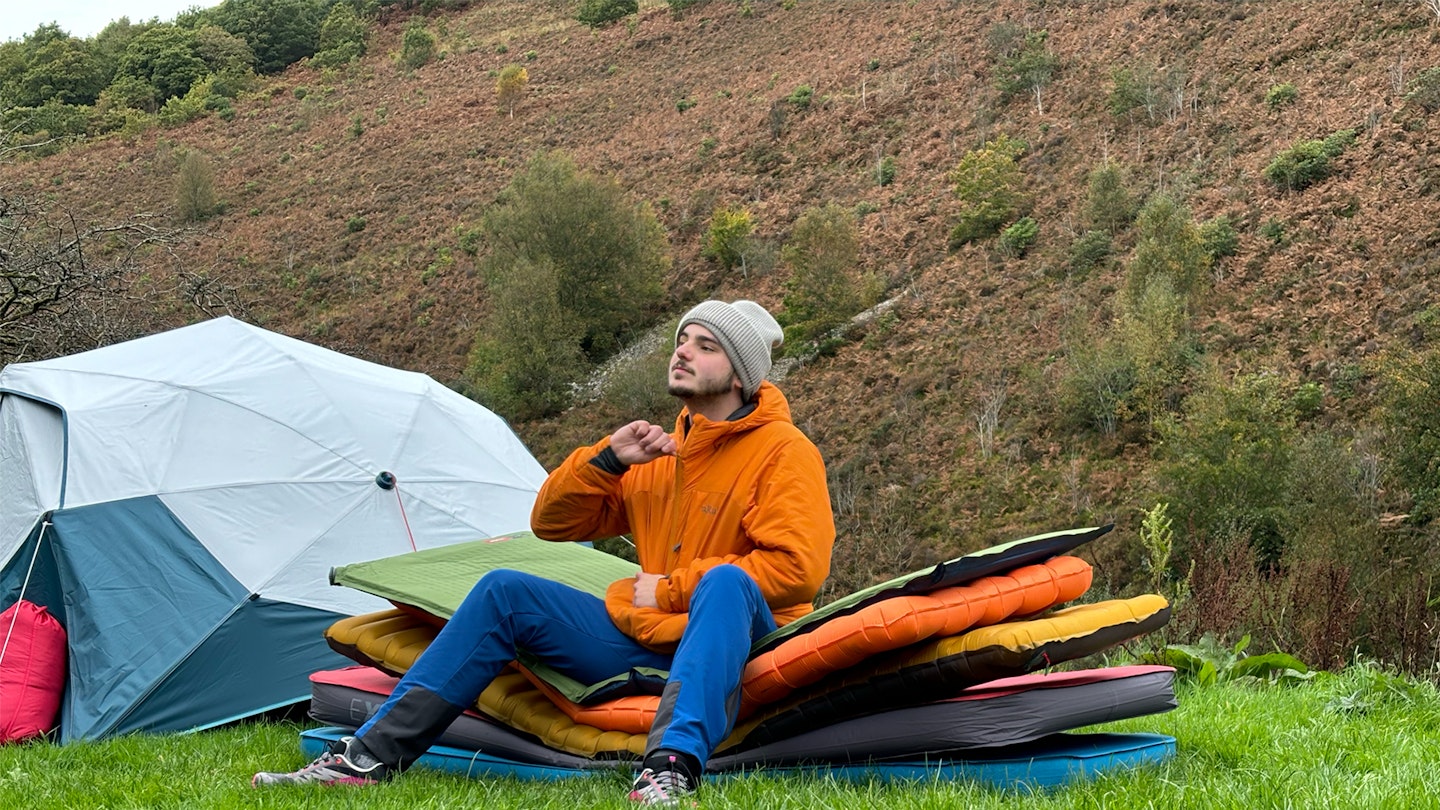
Your main testers for these camping mattresses are Milo Wilson, and Alex Foxfield.
Milo is a full-time member of our team at LFTO and a huge enthusiast for sleep and sleep-related activities. He tested six mattresses over a week in north Devon, where the nice people at Cloudfarm Campsite were kind enough to help him with his testing photo shoot.
His testing trip was in late October, which was the last few days that the site was open for business and temperatures overnight reached lows of -5ºC. Luckily, of the six mattresses he brought, none of them let him down and he remained warm throughout the icy Exmoor nights. Milo's been testing outdoor gear and writing product reviews since he graduated from university.
Meanwhile, Alex Foxfield is a new contributor at LFTO, but he's certainly not new to sleeping outside. Catch him forcing his whole brood into one of his many family tents on a weekend.
When assessing a camping mattress, we focus on four key areas: comfort, insulation, portability, and durability. A good mattress should strike a balance between cushioning and support, ensuring a restful night’s sleep without feeling like a bouncy castle.
Insulation is crucial for colder months, with R-value being the main indicator of thermal resistance. Portability matters too—while thick self-inflating mats offer luxury, they can be a pain to carry compared to ultralight inflatable options. Lastly, durability is tested through material quality, seam strength, and puncture resistance, because nothing ruins a trip faster than waking up on the cold, hard ground.
Best camping mattresses reviewed:
This mattress really is over the top for your average camper, by which we mean someone who's used to a little discomfort when sleeping in a tent. But by golly is the Exped Megamat a luxuriously spacious mattress that easily beats out a few real beds we've stayed in when it comes to comfort.
We tested the LXW edition; this particular model is infamous amongst Exped’s sleep range for its unbeatable comfort levels and excellent insulation. Width is an often undervalued aspect of a sleeping mat, yet it’s one of the most notable and pronounced elements of the Megamat 10, which measures 197 x 77cm.
We believe that near-meter of width is the secret behind the Megamat’s massive comfort levels, as the ability to turn over in the night without slipping off your mat is a rare and wonderful treat. It's also 10cm thick and the foam construction keeps you toasty and off the ground all night long, while avoiding the bubbly feeling of a blow-up pad.
With a whopping R rating of 8.1, insulation in deep winter conditions is no problem for the Megamat 10. That said, insulation isn't the same as actual warmth (which is your sleeping bag's job) so don't worry about overheating on this in the summer months.
The Megamat 10 is designed to be self-inflating, and of the picks in our list, it does take the longest. But luckily it comes with a mini pump for topping up to your desired firmness – or speeding the whole process along if you don't have time to wait.
In all, the only area where this mattress falls short is in versatility. It's just massive, and while it's easy to deflate and pack away, it's packed size is still shoulder-strap-requiringly large. That said, you'll see some mattresses here that literally need to be boxed away, so packing into a carry case is actually better than some competition.
Also, it's 2.6kg. It won't come on every trip, but if you're not pitching too far from a car, then its the best bed you can get.
Pros
- Super comfortable
- Huge insulation rating
- Extra wide for fussy sleepers
- Easy to inflate and deflate
Cons
- Bigger than most 1-person tents
- Very heavy to carry
| RRP | £290 / $239.95 |
| Packed size | 79 x 25cm |
| R value | 9 |
| Materials | 50 D Tricot nylon with honeycomb embossed top fabric, 75 D polyester bottom fabric |
| Weight | 2.6kg / 5.7lbs |
| Dimensions | 197 x 77 x 10cm |
This may not be a 'budget' camping mattress, but we believe that the value provided by the smart engineering of the ZOOM UL by Big Agnes is second to none.
Where comfort powerhouses like the Exped Megamat or the Sea to Summit Comfort Deluxe are designed for long stays in basecamps or winter outposts, the Zoom UL Insulated camping mattress thrives in your hiking pack – on the move. The base model weighs just 397g and packs down into an impressive 10 x 20cm bundle. This level of portability isn't unheard of, but it's rarely combined with an equally high level of comfort.
The pad is 8.25cm thick, but the outer chambers are bumped up to 8.89cm to give a soft raised boarder that keeps you cradled in the centre. Our biggest gripe with air mattresses is how easy it is to slide off of one while sleeping; this seemingly subtle detail is what puts the Zoom UL miles ahead of the inflatable competition.
Additionally, we found the nylon ripstop pleasantly soft, and the insulation was more than good enough for a blustery British October, though we wouldn't push it much further into the winter months.
We had an easy enough time blowing up the Zoom UL using the included inflation sack. If you've never used one before, picture a sturdy pillow case with one open end and a valve opposite which smoothly connects to the valve on the mat. You basically catch a load of air inside the sack and then roll it down to push the air into the mattress – it's quite fun to do, actually.
In all, this mattress is a dream for ultralight enthusiasts looking to catch some quality Z's. It takes some effort to set up every night, but we will definitely be bringing the Big Agnes Zoom UL on our next long-distance backpacking trip.
Pros
- Fantastically lightweight
- Packs down small very easily
- Raised edges provide extra comfort
- Sustainably constructed
Cons
- Not as wide as other choices
- Inflation can be a hassle if you're tired
| RRP | £225 / $229.95 |
| Packed size | 10 x 20cm |
| R value | 4.3 |
| Materials | GRS certified post-consumer recycled nylon ripstop; TPU lamination; two layers of heat reflective film |
| Weight | 397g / 14oz |
| Dimensions | 25 x 78 x 9 cm |
If you’re used to the bounce and wobble of traditional air beds, the Ultim Comfort Double from Quechua is a revelation.
This self-inflating mattress unrolls into a firm, quiet and stable platform that feels reassuringly close to a real bed – without the usual campsite compromises. We slept soundly on it in a family tent during a heatwave in Devon, with zero roll-together and barely any partner movement transfer.
Inflation is simple: open the ‘In’ valve and watch it puff itself up to about 80%, before topping it off manually. It took us around 24 breaths to reach full firmness – not the most elegant finish, but quick enough.
Decathlon’s decision to use top-and-bottom clips to hold both halves together during deflation is a masterstroke, making packing away genuinely easy. Fold it twice and it slides neatly into its boxy carry bag, which fits better in a boot than most cylindrical sacks.
The 8cm thickness offers solid ground clearance and, with a whopping R-value of 8.6, this is easily warm enough for year-round use – not bad for a £149.99 mat. It’s wide, too, at 136cm – roomy for two, though possibly too big for narrower tent pods.
Materials feel tough and comfortable, but there’s no mention of recycled content, which is a minor disappointment in an otherwise impressive package.
At 5.3kg, it’s hefty, but who’s carrying it far? For car camping couples who want warmth, comfort and no faff, this is an outstanding option.
Read our full Quechua Ultim Comfort review, or get the single version here.
Pros
- Very comfortable, flat sleeping surface
- Simple setup and inflation
- Flat when packed down
- Packs down really easily
- Great value
- Wider than most
Cons
- Takes a bit of puff to get fully inflated
- No mention of recycled materials
- Too wide for some 2-person spaces
| RRP: | £149.99 |
| Dimensions: | 200 x 136cm |
| Thickness: | 8cm |
| Packed size: | 78 x 56 x 16cm |
| Weight: | 5.3kg/12lbs |
We were seriously impressed by the Coleman Supercomfort Double during a week of camping in changeable British summer weather.
Despite being just 7.5cm thick, this self-inflating mat felt consistently firm, flat and stable, with a sleeping surface that distributed weight evenly and barely rustled at all. The horizontal ridges are subtle enough to be almost imperceptible in use, giving it a smoother feel than some of the chunkier competition.
Inflation is where this mat really shines. The dual cyclone valves get things started quickly, and the included stuff sack cleverly doubles as a pump sack – just a few rolls and the mat reaches full firmness without the need for lung power.
It’s an elegant solution, and one that made us wonder why more brands haven’t copied it. Deflation takes a little more practice, and we found it wasn’t quite as easy to roll away as the Berghaus or Quechua models, but the included Velcro straps helped keep things tidy.
With an R-value of 7.8, the Supercomfort is easily warm enough for year-round use, and the 200 x 128cm size offers ample room for two. Materials feel tough and soft in equal measure, though there’s no mention of recycled content.
At 4.1kg it’s the lightest of the double mats we tested here – ideal for car campers who appreciate comfort but still need to lug their gear across a festival field or campsite.
Read our full Coleman Supercomfort Double review.
Pros
- Lovely flat and firm sleeping surface
- Suitable for year-round camping
- Inflation can be finished with pump sack
- Two valves make for quick inflation and deflation
- Lighter than most of the competition
Cons
- Not as easy to pack away as some
- No mention of recycled materials
| RRP: | £190 |
| Dimensions: | 200 x 128cm |
| Thickness: | 7.5cm |
| Packed size: | 66 x 36 x 36cm |
| Weight: | 4.1kg/9lb 0.6oz |
| R-value: | 7.8 |
The Berghaus Air Double is a sturdy, well-insulated self-inflating mat that proved seriously comfortable during a warm June camp.
Its 10cm thickness offered excellent support without the wobble of a traditional airbed, and we were impressed by how little movement transferred between sleepers. It’s also a blissfully quiet mat – no squeaking or crinkling when rolling over, even on restless nights.
We appreciated the durable TPU-laminated polyester outer, which feels soft to the touch but robust enough for repeated use. Inflation is handled by a dual-function cyclone valve, with a rotating toggle that switches between ‘inflate’ and ‘deflate’.
Leave it for 20 minutes and most of the work is done – although we still had to finish inflation by mouth. That final puff takes effort, and the valve’s large size isn’t especially lip-friendly. A pump sack would have made the process easier.
The horizontal baffles are more prominent than some might prefer – you can feel them under your back – but they’re better aligned for comfort than vertical ones, and we soon got used to them. At 132cm wide, it fits neatly in most two-person tent pods and blackout inners, though its packed size is chunky at 68 x 38 x 35cm.
With an R-value of 6.9, this mat is winter-ready yet breathable enough for summer. It’s lighter than the similarly specced Quechua Ultim Comfort, and packs down easily into its generous stuff sack. Overall, it’s a strong contender for couples wanting comfort and all-season performance.
Read our full Berghaus Air Double review.
Pros
- Innovative inflation and deflation valve
- Self-inflating, to a point
- Insulating enough for winter adventures
- Firm, supportive and comfortable
- Soft sleeping surface
- Packs away easily
Cons
- Not as flat feeling as some
- Finishing inflation by mouth takes some effort
| RRP: | £300 |
| Dimensions: | 200 x 132cm |
| Thickness: | 10cm |
| Packed size: | 68 x 38 x 35cm |
| Weight: | 4.59kg/10lb 1.9oz |
| R-value: | 6.9 |
This is another luxurious pick for comfy camping in a spacious tent. At 4 inches thick, it's marginally thinner than the Exped Megamat, but for our money it's still extremely comfortable.
We tested the regular wide model and found it more than accommodating for a fussy 6'1 man, but if you want to get crazy, this mattress is also available in a double size.
Sea to Summit reportedly use their 'delta core technology' to reduce the amount of foam in their mattresses. The interior of the Comfort Deluxe is comprised of hollow tessellating foam shapes, which are quite noticeable when you go to roll this mat up.
Admittedly, we found the Comfort Deluxe much easier to pack away and carry than the Megamat, so it earns a few points for portability.
That said, the Comfort Deluxe is still knocking on the door of 2kg heavy and should not be on your kit list for backpacking.
The self inflation is fairly quick and easy, and the air valve does a good job of preventing re-inflation when you're packing up. It's spacious, comfortable, and with an R-value of 6.5, this mattress can definitely get you through some chilly nights.
Pros
- Available in a wide range of sizes
- Lighter than its main competitors
- Inflates quickly (after first use)
Cons
- Stuff sack a bit of a faff
| RRP | £190 / $249 |
| Packed size | 18 x 67cm |
| R value | 6.4 |
| Materials | 30D polyester knitted upper, 75D polyester base |
| Weight | 1.99kg / 4.4lbs |
| Dimensions | 183 x 64 x 10cm |
This has to be one of the most expensive camping mattresses on the market right now.
The Big Agnes Captain Comfort Deluxe comes in three sizes, 30x78in (76x198cm), 41x72in (104x183cm) and 52x78in (132x198cm). It’s the larger of the three that we have on test here, and it comes with an RRP of £350 ($379.95).
That’s more than a lot of people spend on a mattress at home, possibly more than some spend on a mattress and bed frame combined!
And it’s undoubtedly a pretty big stumbling block when considering buying this camping mattress. But let me say this. It’s delivers one of (if not the) most comfortable nights of sleep you’ll ever get in a tent.
Add to that an R-value of 9.9 and you’ve got a comfortable place to sleep all year round, through all four seasons.
It’s constructed from a combination of a 3D foam core and open-air cells, with a soft stretch top on the outer. All of this gives this mattress a luxurious feeling underneath.
Setup is easy thanks to the impressive self-inflation qualities. Open the two valves and within 15 minutes it’s well past 50% inflated and after just over 20 we’d say it hits around 70-80% full. You can then finish inflating with a couple of minutes blowing into it or use a mini or mains-powered electric pump to avoid blowing moist air inside (we recommend the latter).
Packing it away is a complete pain in the butt, as it can be tricky to get all the air out and roll it tight enough that it fits back in the bag. We’ve resorted to using an electric pump to deflate it, because otherwise it can take up to 15 minutes to get it packed down enough.
It’s not got a particularly compact pack size (70x31cm, by my measurements) and it’s not exactly lightweight (5.44kg), either, but this is par for the course for this style of camping mattress.
Pros
- Top-class comfort
- Does a good job of inflating on its own
- R-value of 9.9 makes it ideal for year-round use
Cons
- Awkward to pack away into storage bag
- Pretty damn expensive
| RRP: | £350 ($379.95) |
| Packed size: | 70x31cm (27x12in) |
| R-value: | 9.9 |
| Materials: | Top: Polyester wrapped in spandex. Bottom: Thick polyester. Interior: Foam core. |
| Weight: | 5.44kg |
| Dimensions: | 132x198x13cm (52x78x5in) |
Compared to some of the behemoths in this article, the Alpkit Dozer might strike you as laughably thin. However, once fully inflated, we found that it offers plenty of comfort without needing to take up the majority of your car's boot.
The design is fairly no-nonsense, with one valve that automatically starts taking in air once you turn it. The mattress is quite fast to inflate and, while you can top it up with a few breaths, we didn't feel the need. The polyester surface is soft to touch and the mattress has an impressive R-value of 6.8.
Considering the fairly drastic reduction in thickness compared to the Sea to Summit or Exped mattresses, we expected the Alpkit Dozer to be a lot more portable. However, with a packed size of 22 x 66 cm, the Dozer is only a tiny bit smaller, and weighs about the same as the base model from Sea to Summit.
Still, one of the biggest advantages Alpkit has over the competition here is price and ease of use. If you're looking to upgrade your sleep setup for the first time and you've already picked up a good sleeping bag, then the Dozer is a great choice for elevating your kit without breaking the bank or having to fiddle around with layered, multi-purpose valves.
Pros
- Great value
- Easy to use
- Surprisingly good stats
Cons
- Doesn't pack down super well
- Can lose some air throughout the night
| RRP | £79.99 / $109.99 |
| Packed size | 22 x 66 cm |
| R value | 6.8 |
| Materials | Polyester |
| Weight | 1.9kg / 4.2lbs |
| Dimensions | 194 x 62 x 7 cm |
Another option with a sub-£100 price tag, the AirCore 90 from Robens is a classic example of an air bed. It feels a bit floaty, and it lacks the ingenious raised boarder of the Big Agnes Zoom UL, but it still massively outshines a thin matt, being sturdy enough for side-sleepers to feel supported and not have their shoulders touching the hard ground.
The AirCore 90 is also pretty lightweight, clocking in at a respectable 695g, which is made more impressive when you realise that, unlike other options, this mat's inflation system is 100% built-in. The iconic footpump in the bottom corner is easy to use and gets the mattress fully inflated within a minute or two.
It's worth mentioning that, with an R-rating of 1.7, this mattress is best suited to fair-weather campers looking for extra bounce and comfort in their sleep system. The AirCore 90 was certainly very comfortable for our tall tester, but you may prefer the slightly smaller but noticeably lighter AirCore 60 if you don't need the extra legroom.
As well as easy inflation, The AirCore 90 has excellent durability, with a PFC free TPU coating for total water resistance and a construction using 390T nylon. That's a whole lot of threads. It's reassuring, when you're turning over at night or fumbling around your tent looking for a head torch or something, to know that the airy surface under you is not going to pop.
Pros
- Very durable construction
- Lightweight and packs down well
- Fast inflation
Cons
- Not as comfortable as other choices
- Low R-rating limits use to warmer nights
| RRP | £87.99 |
| Packed size | 9 x 32 cm |
| R value | 1.7 |
| Materials | 20D 390T nylon with double line square ripstop, TPU coated |
| Weight | 695g / 24.5oz |
| Dimensions | 195 x 65 x 9 cm |
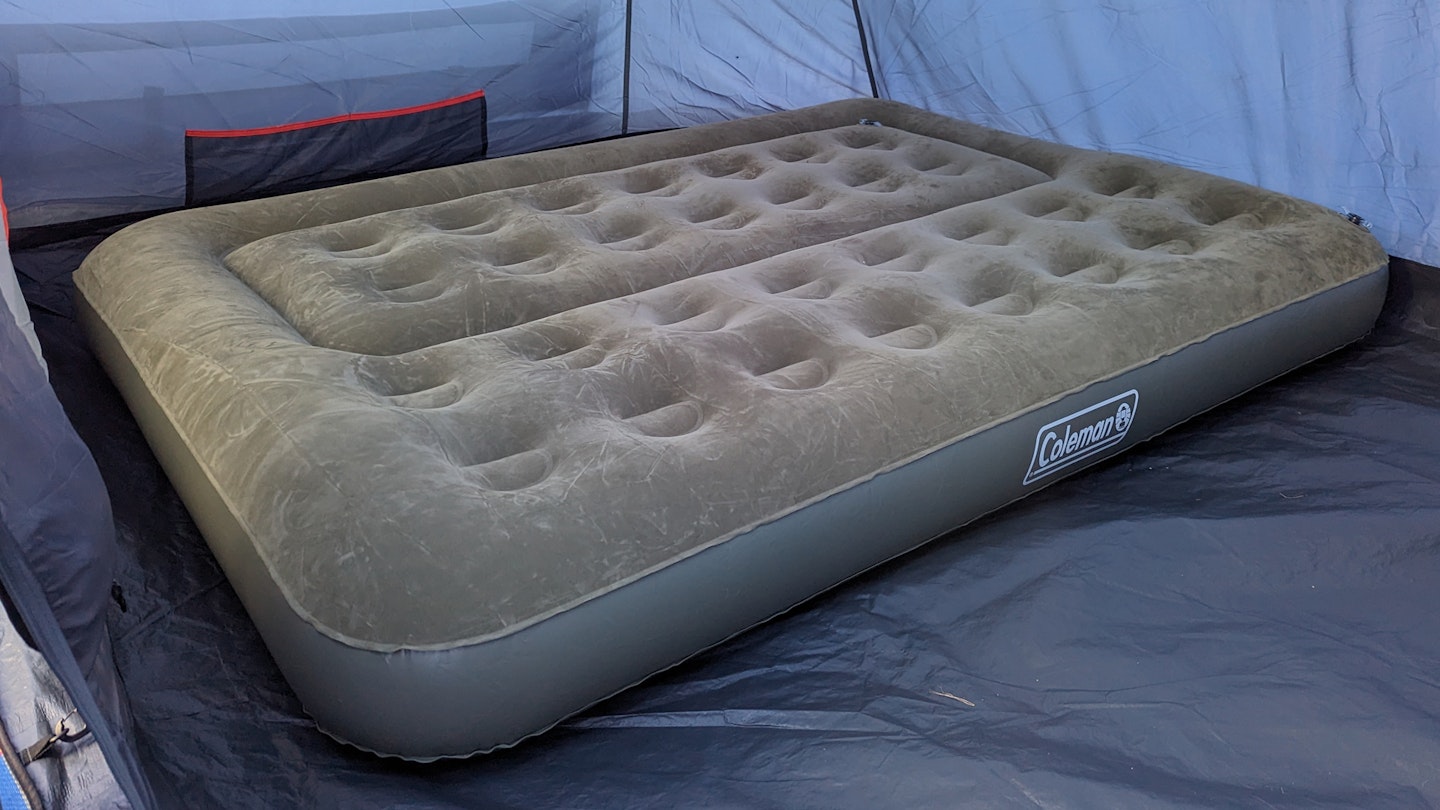 LFTO
LFTOGlamping haters, stand aside. This absolute monster of an airbed is available at a wildly good price, giving anyone access to a luxury sleep option. It was our run tester Kate's choice for Love Trails Festival, and it managed to keep her (and co.) excellently well rested through four days of hardcore trail running
This double airbed fits into a generous 2-man tent or larger, and is plenty big enough to sleep two adults. It’s incredibly simple to set-up too, by use of Coleman’s 12V QuickPump. Two air chambers need to be pumped, with the idea that if you only pump one you can use the mattress as a single, if desired.
The best part? This mattress will also come in handy back home when you have mates and family over to stay. A win-win.
Pros
- Durable construction
- Super spacious – even for two
Cons
- Requires an electric pump (or lungs of steel)
| RRP | £43.99 |
| Packed size | 9 x 32 cm |
| R value | 1.7 |
| Materials | 20D 390T nylon with double line square ripstop, TPU coated |
| Weight | 695g / 24oz |
| Dimensions | 195 x 65 x 9 cm |
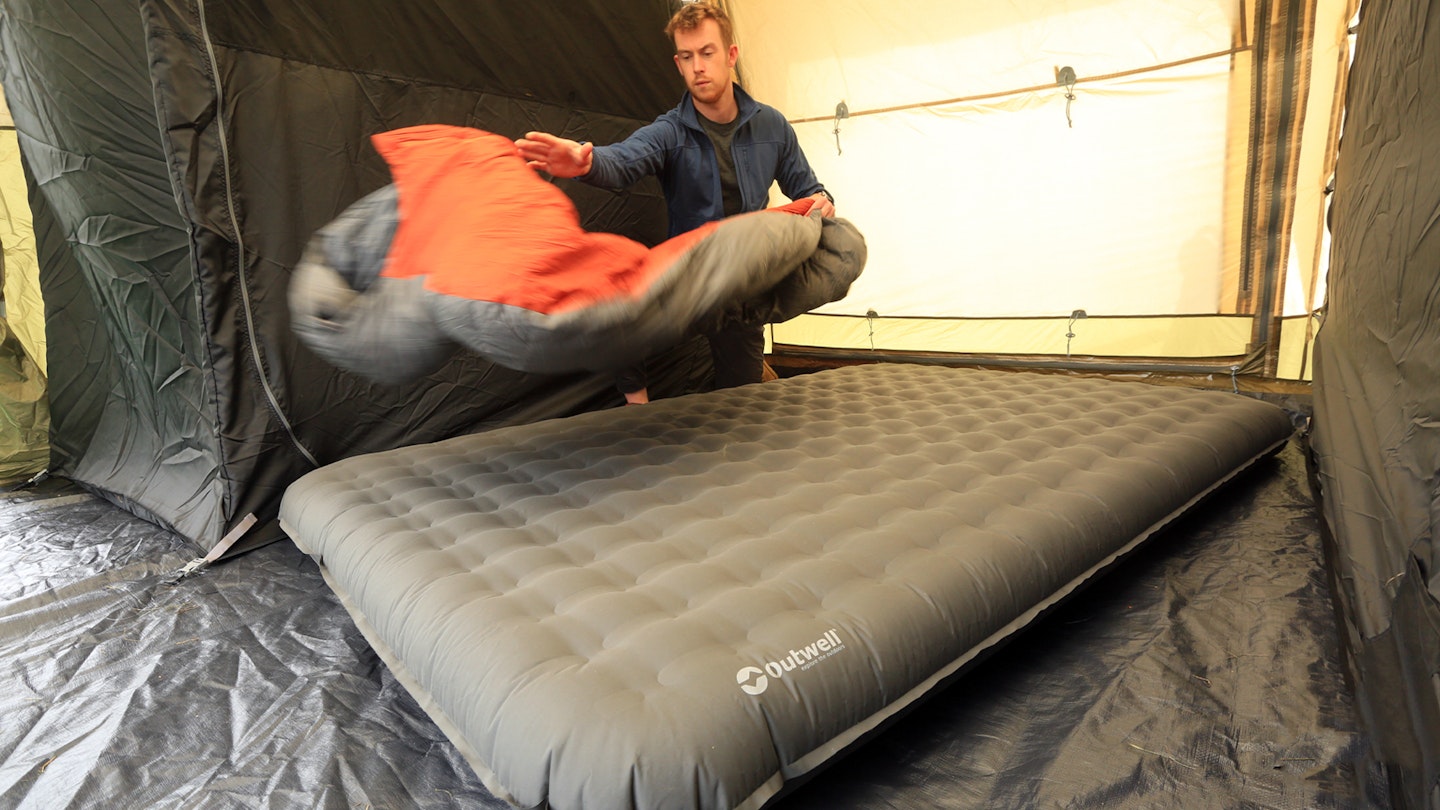 LFTO / Tom Bailey
LFTO / Tom BaileyOccupying the middle ground in terms of price, the Outwell Flow Double Airbed backs up its price point by being one of the most solid and reliable camping mattresses we’ve tested.
You’re not getting a whole lot of features here – it’s basically a no-nonsense double air bed, which is also available as a single, that’s easy to operate and hasn’t let us down once over the past two summers of regular use.
The packed size isn’t tiny (picture a decent sized sack of potatoes) and it weighs in at a fairly hefty 2.4kg, so definitely one for campsite camping rather than stuffing into a backpack. But in terms of performance, we couldn’t ask for much more.
The double seal valve means it’s easy to inflate without worrying about losing any air when you remove your pump, the soft(ish) polyester pongee outer fabric certainly isn’t uncomfortable next to your skin, and most importantly it hasn’t leaked a single bit of air on the numerous camping trips it’s accompanied us on.
We also like the nicely oversized storage bag it comes in, which means you don’t have to spend hours stuffing it back into its bag when you’re packing up.
Pros
- Great durability
- Easy to pack away
- Soft on the skin
Cons
- Quite hefty
- Not too many features
| RRP | £144.99 |
| Packed size | 40 x 20 cm |
| R value | N/A |
| Materials | 100% polyester pongee |
| Weight | 2.4kg / 5.2lb |
| Dimensions | 200 x 140 x 20 cm |
Buying advice: What to look for in a camping mattress
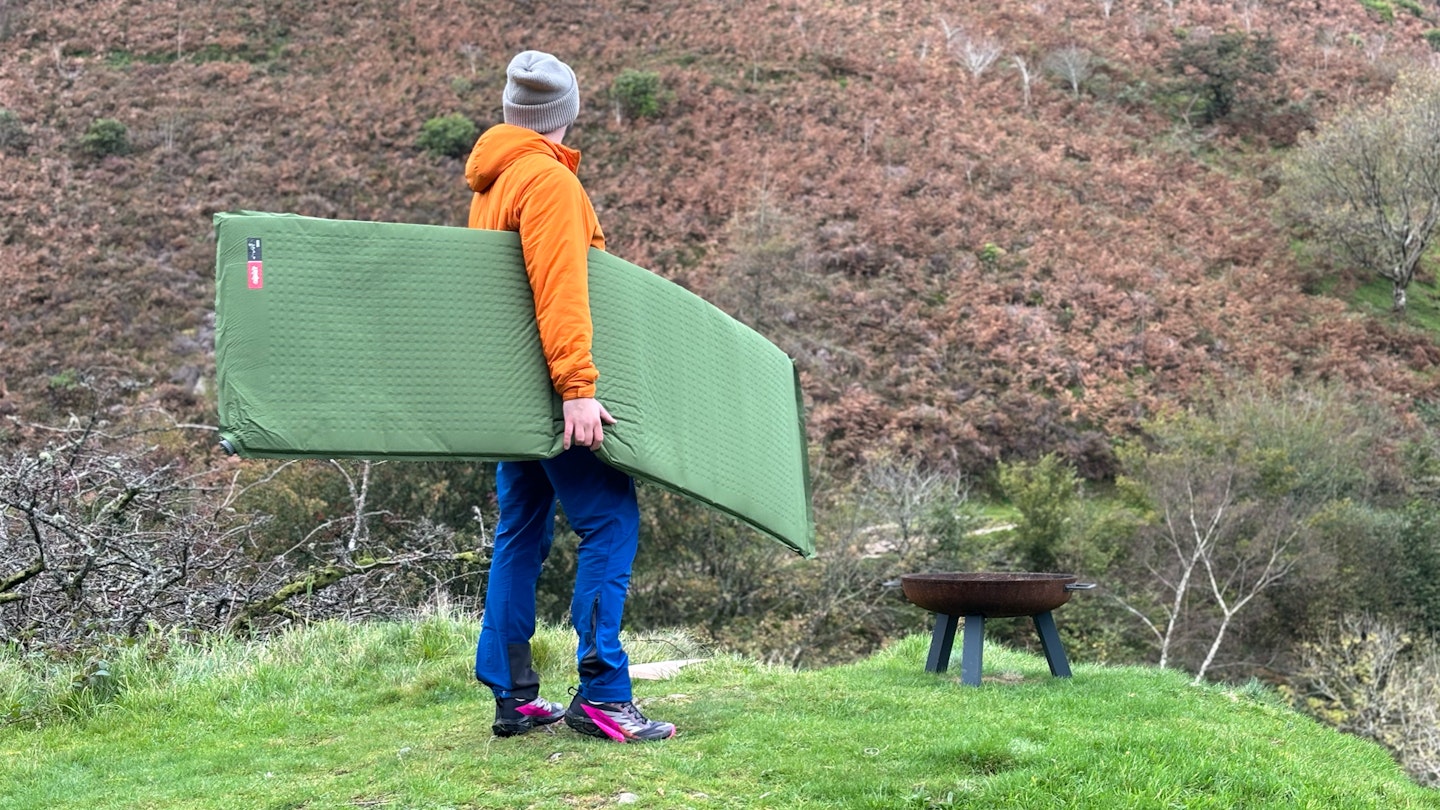
When you're looking to buy the best camping mattress for you, you'll want to consider factors like thickness, portability, and R-value. You'll also need to decide whether to go for a self-inflating design, or a blow-up air bed, both of which have their pros and cons.
Let's get into each factor.
How thick should a camping mattress be?
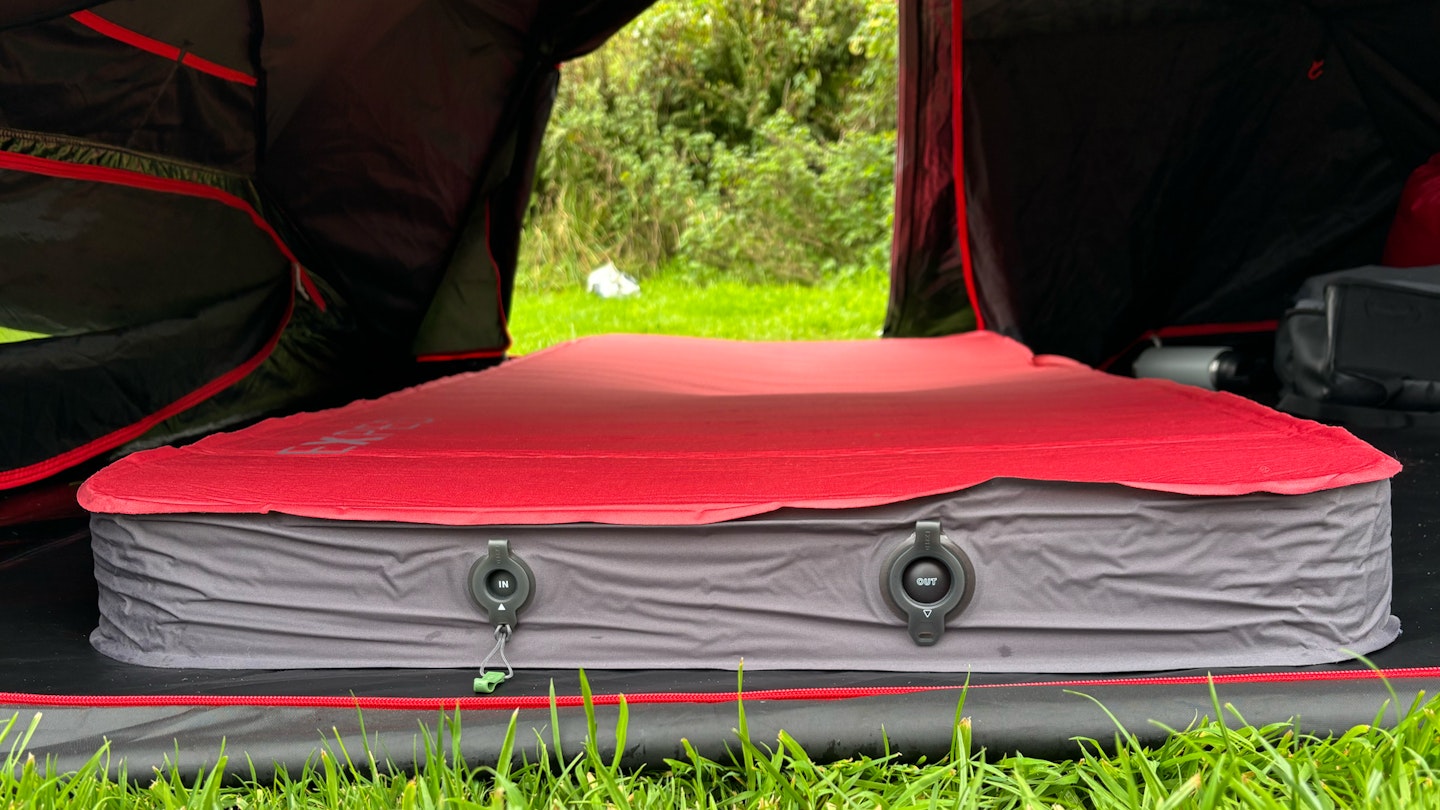
Generally speaking, a thicker mattress should provide more insulation and cushioning. However, note that this is less true for fully inflatable options, which need to be made from a high-quality insulating material in order to maintain a good level of warmth in cold weather.
A thicker air bed might also prove less comfortable than one closer to the ground; some back-sleeping campers aren't fans of the floaty feeling that comes with laying on a tall inflatable mattress. Others, generally side sleepers, will prefer the extra height to keep their shoulders well away from the cold and uneven ground.
That said, if you're looking for pure comfort, a 2-3+ inch thick self-inflating foam mattress is your ideal choice. These mattresses will be highly insulating and have a soft texture which best replicates sleeping in your bed at home.
What is R-value and why does it matter?
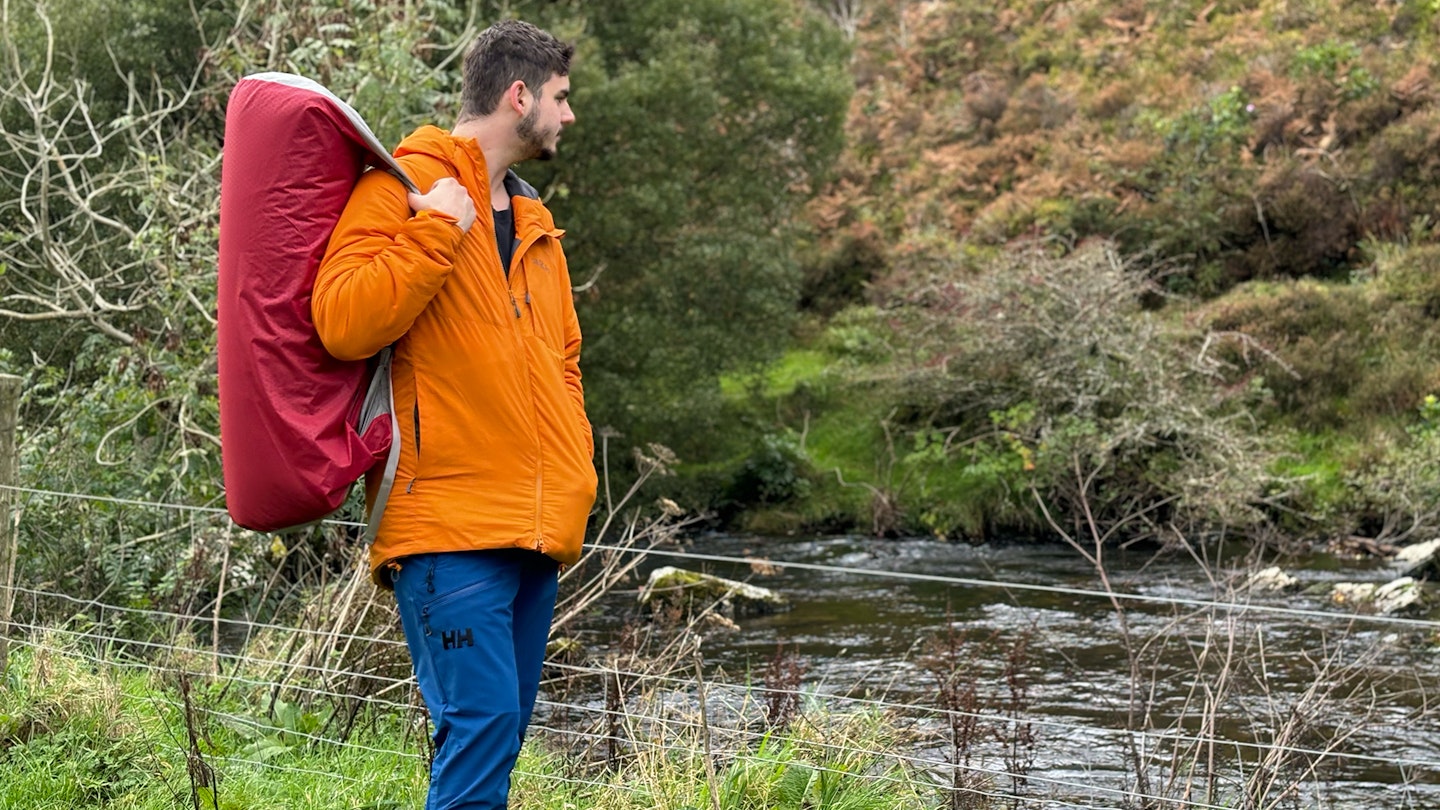
R-value is the measure of a mattress’s ability to resist heat loss. The higher the R-value, the better the insulation. For summer camping, an R-value of 1-3 is fine, but if you're heading out in colder conditions, look for something above 4. Winter campers should aim for an R-value of 5 or more to avoid losing body heat to the cold ground overnight.
Air mattresses tend to have lower R-values unless they feature built-in insulation or reflective layers, while self-inflating foam mats typically perform better in colder temperatures.
What material is best for a camping mattress?
The top surface of a mattress can make a big difference to comfort. Some models have a soft, flocked or velvet-like top, which feels more like a real bed and helps stop your sleeping bag from slipping around. Others are made from slick nylon or polyester, which is more durable and water-resistant but can feel a bit crinkly.
Durability is another key factor. Look for thick denier fabrics, reinforced seams, and puncture-resistant coatings if you want a mattress that will last. If you're camping on rough ground, a foam mat or a mattress with a tough TPU-coated base will stand up better to sharp stones and twigs.
Are self-inflating mats better than air beds?
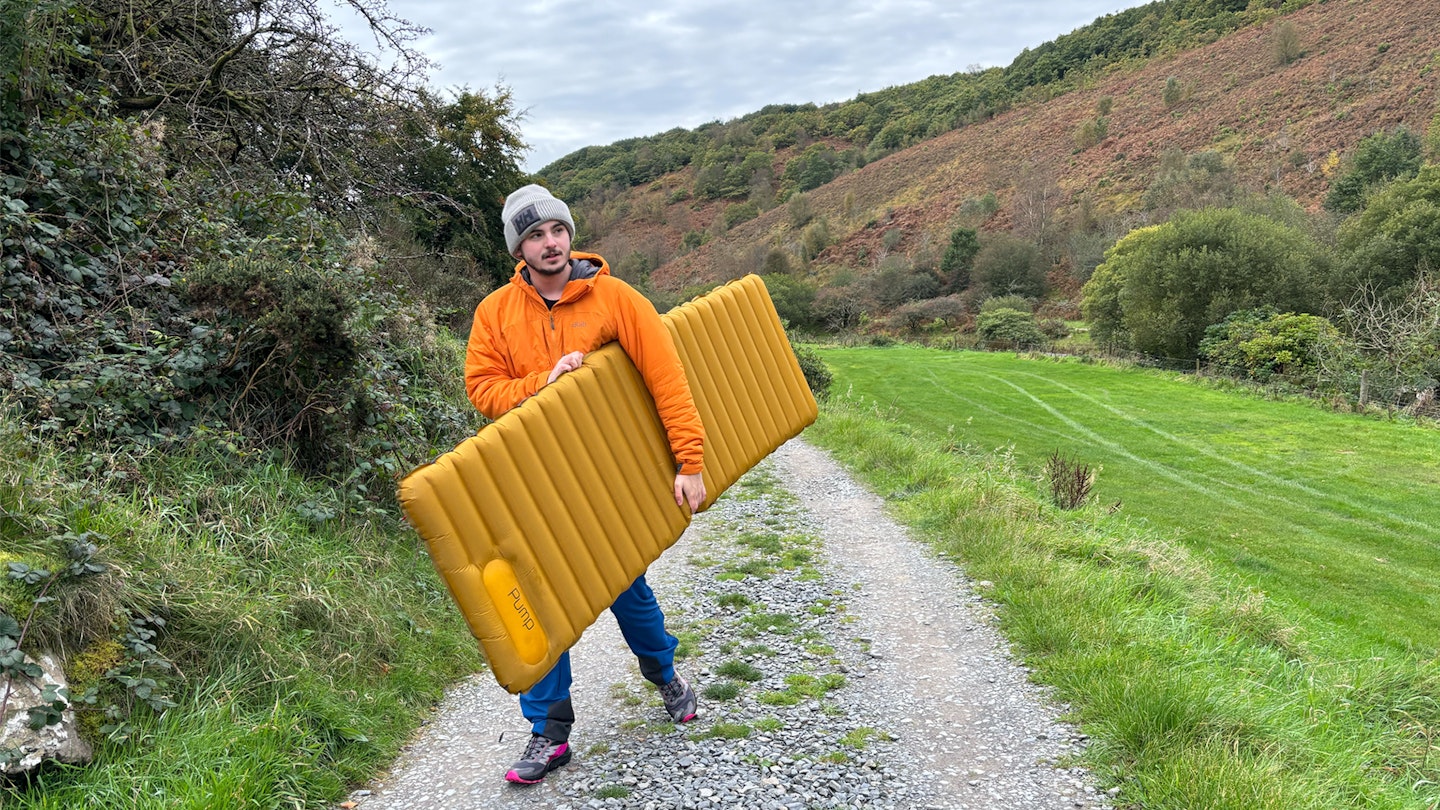
Not always! While it's likely that top quality self-inflating mattress will win out against an air bed in a head-to-head competition Who Slept Better Last Night, other key factors such as weight and packed size are equally important to consider.
You'd be hard pressed to carry the two larger foam mattresses in this list much further than the distance between the car and the tent. Especially if you're setting up any further than 10, maybe 15 metres away. It's packed size is larger than some hiking tents.
And the ability to travel far on foot with a decent air mattress is nothing to sniff at. They're far comfier than thin mats, and if you're doing any cold weather hike / camp adventures, they are absolutely essential.
Do some camping mattresses make a lot of noise?
Oh yes. Very much so. Some ultralight air mattresses have crinkly, noisy materials that can be annoying when you move around in your sleep. If you're a light sleeper or share a tent, look for models with quieter fabrics or a soft top layer to reduce rustling sounds at night.
How easy are they to inflate and deflate?
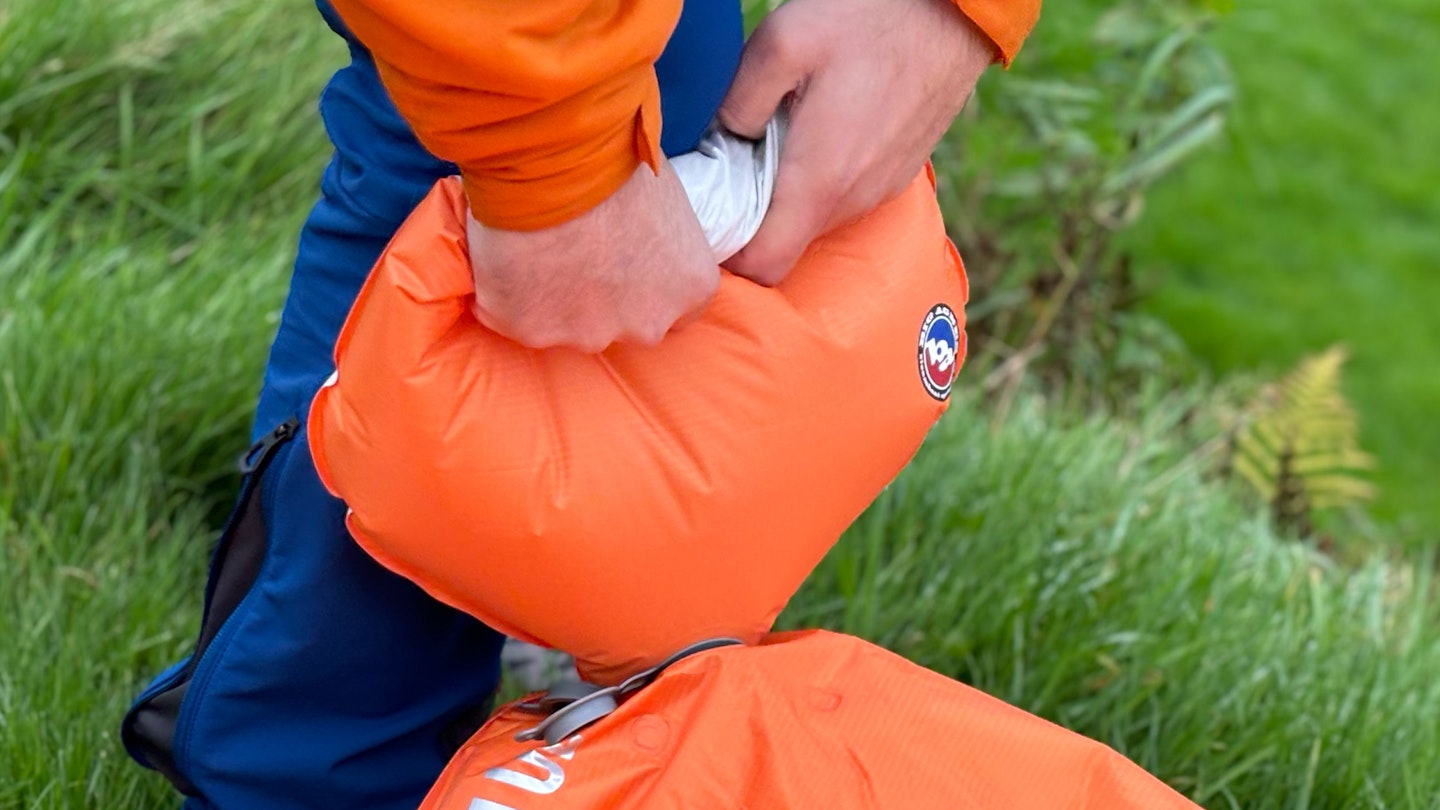
Ease of inflation depends on the type of mattress. Self-inflating mats do most of the work for you—just open the valve and let them expand. Airbeds require a pump, whether manual, battery-operated, or built-in. If you don’t want to pack a separate pump, look for a model with an integrated foot pump or a quick-inflate valve.
How much should you spend on a camping mattress?
Budget options include basic foam pads, which are cheap, reliable, and lightweight but not the most comfortable. Mid-range inflatables and hybrids balance comfort, weight, and insulation, making them ideal for most campers. Premium options feature advanced materials, higher R-values, and extra stability, making them a worthwhile investment for frequent campers or those tackling extreme conditions.
Be sure to buy for the outdoor activities you're planning on doing. And if that's just a road trip in a campervan, go wild and get a camper-sized mattress instead.
About the authors
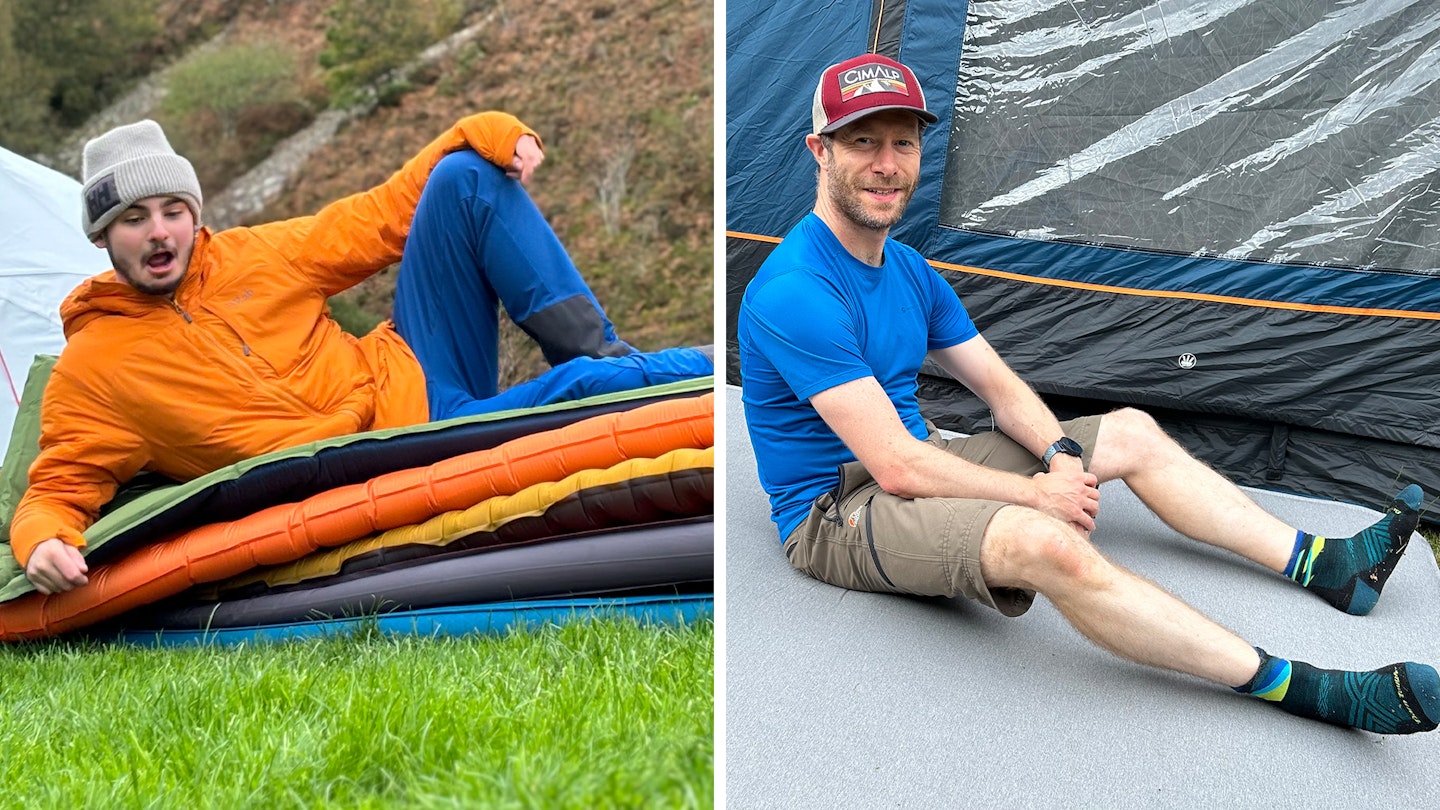
Milo Wilson is a digital content writer for Live For The Outdoors and an all-around swell chap. Put him outside and he's happy, much like a golden doodle. Milo is massively into hiking, trail running, camping and kebabs. As a full-time gear tester, he's always getting stuck in and making sure we only recommend the best kit.
Alex Foxfield is a qualified Mountain Leader, avid wild camper and a family man. He enjoys camping in all its forms. An expert on all things outdoor gear, he’s been testing and reviewing camping kit and tents – from solo backpacking shelters to palatial family car camping tents – for many years.
